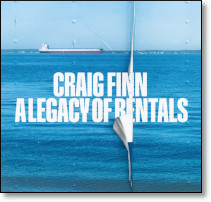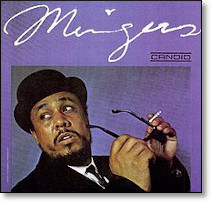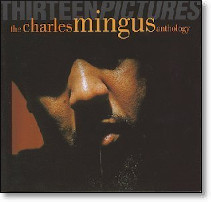Latest
2025
Jan
2024
Dec
Nov
Oct
Sep
Aug
Jul
Jun
May
Apr
Mar
Feb
Jan
2023
Dec
Nov
Oct
Sep
Aug
Jul
Jun
May
Apr
Mar
Feb
Jan
2022
Dec
Nov
Oct
Sep
Aug
Jul
Jun
May
Apr
Mar
Feb
Jan
2021
Dec
Nov
Oct
Sep
Aug
Jul
Jun
May
Apr
Mar
Feb
Jan
2020
Dec
Nov
Oct
Sep
Aug
Jul
Jun
May
Apr
Mar
Feb
Jan
2019
Dec
Nov
Oct
Sep
Aug
Jul
Jun
May
Apr
Mar
Feb
Jan
2018
Dec
Nov
Oct
Sep
Aug
Jul
Jun
May
Apr
Mar
Feb
Jan
2017
Dec
Nov
Oct
Sep
Aug
Jul
Jun
May
Apr
Mar
Feb
Jan
2016
Dec
Nov
Oct
Sep
Aug
Jul
Jun
May
Apr
Mar
Feb
Jan
2015
Dec
Nov
Oct
Sep
Aug
Jul
Jun
May
Apr
Mar
Feb
Jan
2014
Dec
Nov
Oct
Sep
Aug
Jul
Jun
May
Apr
Mar
Feb
Jan
2013
Dec
Nov
Oct
Sep
Aug
Jul
Jun
May
Apr
Mar
Feb
Jan
2012
Dec
Nov
Oct
Sep
Aug
Jul
Jun
May
Apr
Mar
Feb
Jan
2011
Dec
Nov
Oct
Sep
Aug
Jul
Jun
May
Apr
Mar
Feb
Jan
2010
Dec
Nov
Oct
Sep
Aug
Jul
Jun
May
Apr
Mar
Feb
Jan
2009
Dec
Nov
Oct
Sep
Aug
Jul
Jun
May
Apr
Mar
Feb
Jan
2008
Dec
Nov
Oct
Sep
Aug
Jul
Jun
May
Apr
Mar
Feb
Jan
2007
Dec
Nov
Oct
Sep
Aug
Jul
Jun
May
Apr
Mar
Feb
Jan
2006
Dec
Nov
Oct
Sep
Aug
Jul
Jun
May
Apr
Mar
Feb
Jan
2005
Dec
Nov
Oct
Sep
Aug
Jul
Jun
May
Apr
Mar
Feb
Jan
2004
Dec
Nov
Oct
Sep
Aug
Jul
Jun
May
Apr
Mar
Feb
Jan
2003
Dec
Nov
Oct
Sep
Aug
Jul
Jun
May
Apr
Mar
Feb
Jan
2002
Dec
Nov
Oct
Sep
Aug
Jul
Jun
May
Apr
Mar
Feb
Jan
2001
Dec
Oct
Sep
Aug
Jul
Jun
May
Apr
Mar
Feb
Monday, May 30, 2022
Music Week
 |
 |
 |
 |
 |
 |
 |
 |
Expanded blog post, May archive (in progress).
Tweet: Music Week: 62 albums, 8 A-list,
Music: Current count 38015 [37953] rated (+62), 107 [114] unrated (-7).
After finishing last week with a mere 28 newly rated records, I ventured that "it is possible, but not quite probable, that I will pass 38,000 next week." It turns out I did so easily, with the highest new rating count in recent memory. I spent a fair amount of time last week bringing my metacritic file up to date, so the easiest thing to do was to pick off unheard albums from the upper reaches of the list.
I don't have a cached copy of last week's list, but working from this week's reviews I picked up (sorted by current rank; i.e., at the moment of writing): Kurt Vile (40), Sunflower Bean (50), Warpaint (51), Anaďs Mitchell (57), Kevin Morby (59), Porridge Radio (60), Sasami (62), Sea Power (63), Aurora (66), Ethel Cain (67), Tomerlin (73), Gang of Youths (80), Johnny Marr (84), Daniel Rossen (87), Bastille (105), Metronomy (119), Soul Glo (126), Che Noir (160), Max Cooper (194). Needless to say, I didn't spend a lot of time on these (although Vile and Cooper were pleasant surprises; the lower grades would probably sink even lower with more exposure). Ranked (top 200) late-May releases omitted above: Harry Styles (39), Craig Finn (114), Wilco (155), Mxmtoon (180). Tate McRae is (211), and Van Morrison is unranked (my 1 point will put him on the list, but thus far I've only added my points to albums on the list for other reasons).
That leave as my top-ranked unheard releases: Just Mustard (54: 05-27, playing now), Band of Horses (92), Destroyer (97), Boris (108), Eels (112), Everything Everything (113), Pup (121), Shamir (124), Eddie Vedder (129), Blossoms (132), Buzzard Buzzard Buzzard (133), Grace Cummings (136), Empath (138), Hatchie (141), Melt Yourself Down (142), Midlake (143), The Mysterines (145), Pillow Queens (148), The Regrettes (149), Voivod (153), Orlando Weeks (154), Bloc Party (157), Camp Cope (158), Cave In (159), Crows (162), Liam Gallagher (170), Ghost (171) Kathryn Joseph (176) Lykke Li (178), and most records from (181: Rammstein) on down. Scanning that list, the only ones (besides Just Mustard, which is sounding like a low B+) I'm likely to hit next week are Pup and Shamir (well, maybe Hatchie and/or Everything Everything).
I'm rather pleased with the range of this week's A- records. Also that I took a bite out of the unrated list, and that three of them turned out to be so good (if in totally different ways). I'd really like to cut the list way down, but it's proving difficult to even find the remaining albums. Daunting boxes are a lesser problem, as they'll take a big chunk of time: Richard Pryor (9CD), Frank Sinatra (14CD, but mostly albums I've already graded), Neil Young (10CD), plus another half-dozen in the 3-4CD range. On the other hand, about half of what's left I'd just as soon forget I have.
Highly recommended music history link: Phil Overeem's "Groundbreaking Women in U.S. Music: A History in 150 [or so] Albums": Greatest Hits From Two Essay Assignments.
With five weeks in May, I've added 241 records to the ratings database. See link up top for the monthly archive. I've done the indexing, but haven't yet added the Music Week introductions.
I published a rather rushed Speaking of Which yesterday. Some extra links I would have included had I known of them:
- Annabelle Timsit: [05-30] U.S. marks Memorial Day weekend with at least 11 mass shootings.
- Dean Baker: [05-27] Getting Rents Down, Converting Vacant Office Space to Residential.
- David Edwards: [05-30] Kansas police shoot pregnant Black woman five times despite having her hands up.
- Hadas Gold/Abeer Salman: [05-30] Israelis lament 'racism problem' as Jerusalem march turns ugly: Note that the new isn't the racism. It's that some Israelis "lament" it. For another view, see Yumna Patel: [05-29] Hundreds injured as Palestinians demonstrate against 'flag march'. Or more pointedly, Richard Silverstein: [05-29] Jerusalem Day = Nuremberg Day: "Israeli Judeo-fascists rampage through Palestinian Jerusalem chanting blood-curdling Death to Arabs."
- Yasha Levine: [05-26] Domestic wars are depressingly unfixable. Foreign wars . . . they make America feel great. "There isn't an area of life in this place called America that isn't fucked."
- Paul Waldman: [05-30] Donald Trump has nothing left but spite. I used to think that the sunniness of Ronald Reagan's disposition allowed people to overlook the vicious cruelty at the core of his agenda, but with Trump you have to admit it's the dark side his fans adore. Waldman also wrote: [05-27] Our gun laws were built on fantasy and terror.
I also wanted to beat Bill Scher: [05-16] The Deeply Flawed Narrative That Joe Biden Bought with a heavy stick. The notion that Obama was a master of practical politics is little short of risible, but using that flimsiest of arguments as a cudgeon against Biden for having attempted (and, thus far, mostly failed) something more ambitious is sinister. Many of the people who think that Obama's star has dimmed (even ones who personally admire him) do so because we realize that his legacy of failure left us with a nation that was willing to give Donald Trump a try. I wish Biden was better able to overcome the damage that Trump (and others, of both parties) did, but it's hard to see how slamming Biden for being too ambitious helps. I also wanted to take a look at another piece of less-than-friendly advice for Democrats, from Matthew Yglesias: [04-14] Moderate Democrats should be popularists. Also saying something similar is Ezra Klein: [05-29] What America Needs Is a Liberalism That Builds. Often these days one gets the impression that the only thing "moderate" Democrats want to do is to chastise us for wanting government to actually do things that help the people who they depend on for votes.
New records reviewed this week:
- Oren Ambarchi/Johan Berthling/Andreas Werliin: Ghosted (2018 [2022], Drag City): [r]: A-
- Aurora: The Gods We Can Touch (2022, Glassnote): [r]: B
- Bastille: Give Me the Future (2022, Virgin/EMI): [r]: B
- Bright Dog Red: Under the Porch (2022, Ropeadope): [r]: B+(*)
- Bruch: The Fool (2020, Cut Surface/Trost): [bc]: B+(***)
- Chris Byars: Rhythm and Blues of the 20s (2022, SteepleChase): [r]: B+(**)
- Ethel Cain: Preacher's Daughter (2021, Daughters of Cain): [r]: B+(*)
- Che Noir: Food for Thought (2022, TCF Music Group): [sp]: B+(***)
- Rachel Chinouriri: Better Off Without (2022, Parlophone/Atlas, EP): [r]: B+(*)
- Max Cooper: Unspoken Words (2022, Mesh): [r]: B+(***)
- Bryan Ferry: Love Letters (2022, BMG, EP): [r]: B+(*)
- Craig Finn: A Legacy of Rentals (2022, Positive Jams): [r]: A-
- David Friend & Jerome Begin: Post- (2022, New Amsterdam): [r]: B+(*)
- Gang of Youths: Angel in Realtime (2022, Warner): [r]: B+(*)
- Keith Hall: Made in Kalamazoo: Trios and Duos (2019 [2022], Zoom Out): [cd]: B+(***) [06-24]
- Amanda Irarrázabal/Miriam van Boer Salmón: Fauces (2019 [2022], 577): [cd]: B [07-15]
- Milen Kirov: Spatium (2019 [2022], Independent Creative Sound and Music): [cd]: B+(*) [06-05]
- MJ Lenderman: Boat Songs (2022, Dear Life): [r]: B+(**)
- Johnny Marr: Fever Dreams Pts 1-4 (2021-22 [2022], BMG): [r]: B+(*)
- Tate McRae: I Used to Think I Could Fly (2022, RCA): [r]: B+(***)
- Metronomy: Small World (2022, Because Music): [r]: B+(**)
- Anaďs Mitchell: Anaďs Mitchell (2022, BMG): [r]: B+(**)
- Billy Mohler: Anatomy (2021 [2022], Contagious Music): [cd]: A- [06-10]
- Kevin Morby: This Is a Photograph (2022, Dead Oceans): [r]: B+(*)
- Van Morrison: What's It Gonna Take? (2022, Exile): [r]: B+(*)
- Ali Shaheed Muhammad & Adrian Younge: Jazz Is Dead 011 (2022, Jazz Is Dead): [sp]: B+(*)
- Ali Shaheed Muhammad & Adrian Younge: Jazz Is Dead 012: Jean Carne (2022, Jazz Is Dead, EP): [bc]: B+(*)
- Mxmtoon: Rising (2022, AWAL): [r]: A-
- Jason Palmer: Con Alma (2022, SteepleChase): [r]: B+(**)
- Porridge Radio: Waterside, Diving Board, Ladder to the Sky (2022, Secretly Canadian): [r]: B+(*)
- Potsa Lotsa XL & Youjin Sung: Gaya (2021 [2022], Trouble in the East): [bc]: B+(*)
- Daniel Rossen: You Belong There (2022, Warp): [r]: B-
- Sasami: Squeeze (2022, Domino): [r]: B+(**)
- J. Peter Schwalm & Stephan Thelen: Transneptunian Planets (2020-21 [2022], RareNoise): [cdr]: B+(**) [06-03]
- Sea Power: Everything Was Forever (2022, Golden Chariot): [r]: B
- Soul Glo: Diaspora Problems (2022, Epitaph): [sp]: B+(*)
- Harry Styles: Harry's House (2022, Columbia): [r]: B
- Sunflower Bean: Headful of Sugar (2022, Mom + Pop): [r]: B+(**)
- Tomberlin: I Don't Know Who Needs to Hear This . . . (2022, Saddle Creek): [r]: B+(*)
- Kurt Vile: (Watch My Moves) (2022, Verve Forecast): [r]: B+(***)
- Warpaint: Radiate Like This (2022, Virgin): [r]: B+(*)
- Wilco: Cruel Country (2022, dBpm): [r]: B+(***)
Recent reissues, compilations, and vault discoveries:
- Jim Black: My Choice (2000-12 [2021], Winter & Winter): [r]: B+(**)
- Peter Brötzmann/Fred Van Hove/Han Bennink: Jazz in Der Kammer Nr. 71: Deutsches Theater/Berlin/GDR/04/11/1974 (1974 [2022], Trost): [bc]: B+(***)
- Koichi Matsukaze Trio Featuring Ryojiro Furusawa: At the Room 427 (1975 [2022], BBE): [bc]: A-
- Ephat Mujuru & the Spirit of the People: Mbavaira (1983 [2021], Awesome Tapes From Africa, EP): [bc]: B+(*)
- Papé Nziengui: Kadi Yombo (1989 [2022], Awesome Tapes From Africa): [bc]: B+(***)
- Sonic Youth: In/Out/In (2000-10 [2022], Three Lobed): [r]: B+(**)
- Norma Tanega: I'm the Sky: Studio and Demo Recordings 1964-1971 (1964-71 [2022], Anthology): [r]: B-
- They Shall Not Pass/No Pasaran! [Trost Live Series] (2007-22 [2022], Trost): [bc]: B+(*)
Old music:
- Amandla! A Revolution in Four-Part Harmony (1955-2001 [2003], ATO): [cd]: B+(**)
- Milton Brown and the Musical Brownies: The Complete Recordings of the Father of Western Swing 1932-1937 (1932-37 [1995], Texas Rose, 5CD): [cd]: A-
- Chris Byars: Jasmine Flower (2013, SteepleChase): [sp]: B+(**)
- Chris Byars: The Music of Duke Jordan (2014, SteepleChase): [sp]: B+(***)
- Chris Byars: A Hundred Years From Today (2017 [2019], SteepleChase): [sp]: B+(***)
- John Clark: I Will (1996 [1997], Postcards): [bc]: B+(**)
- Tony Conrad With Faust: Outside the Dream Syndicate [30th Anniversary Edition] (1972 [2002], Table of the Elements, 2CD): [cd]: A-
- Jars of Clay: The Essential Jars of Clay (1995-2006 [2007], Essential/Legacy, 2CD): [cd]: C+
- Jit -- The Movie (1991, Earthworks): [cd]: A-
- The Mercenaries: Locks, Looks and Hooks (2006, Melted Vinyl): [cd]: B+(*)
- Mxmtoon: The Masquerade (2019, House Arrest): [r]: B+(*)
- Mxmtoon: Dawn & Dusk (2020, AWAL): [sp]: B+(**)
Unpacking: Found in the mail last week:
- Tom Collier: The Color of Wood (Summit) [04-01]
- Christopher Jacob: New Jazz Standards Vol. 5: The Music of Carl Saunders (Summit) [05-20]
- Josh Sinton/Tony Falco/Jed Wilson: Adumbrations (Form Is Possibility) [06-03]
- John Wasson's Strata Big Band: Chronicles (MAMA) [05-20]
Sunday, May 29, 2022
Speaking of Which
I had a notion to write another 5-6 paragraphs to update my 23 Theses on Ukraine, but that remains a pretty accurate account of how and why Putin invaded Ukraine, and what it means. But all I really want to add at this point is a brief (and certainly incomplete) list of reasons the war in Ukraine is a colossal disaster for all concerned -- and, indeed, for many who initially felt uninvolved and disinterested.
Most obviously, there's the loss of lives, the maiming, and the vast destruction of property, including critical infrastructure, in Ukraine itself. Credible numbers are hard to find. Then there is the disruption of everyday life -- about 6.7 million refugees have left Ukraine, while many more have been displaced but are still in the country. Ukraine's economy has been devastated. Every day the war continues adds to those losses, most of which will never be recovered.
The economic losses both in Ukraine and in Russia (thanks to sanctions) have already impacted economies all around the world, causing shortages as exports (especially food and oil) are taken off the market, and depressing imports (except where subsidized from abroad, like arms to Ukraine). People in wealthy countries can compensate by bidding up prices, an effect felt even in the US, which is largely self-sufficient in food and oil. Poor countries are hit even harder. Less important, but capital flows are also impacted, and foreign assets (both in Russia and elsewhere) are politically vulnerable.
The war has led to two booms in arms sales. The obvious one is arms sent to Ukraine for use against the invading Russians. (Russia is more self-sufficient in arms, although they could be buying more arms from China.) As many of these arms come from stockpiles, there is pressure to replenish those, so the boom will likely extend beyond the end of the war (assuming there is one). The less obvious one is that many US allies have committed to building up their own armed forces. This is especially true of Germany and Japan -- something especially disquieting for those of us old enough to recall what happened last time they embraced militarism (or who were gratified when they turned away from militarism after WWII). The war has also heightened the push to get Taiwan to buy more arms, to ward off a possible (but still very unlikely) invasion by China. The worst lesson politicians think they've learned from this war is their renewed belief in the efficacy of arms. This keeps them from understanding why the war happened, prevents them from understanding how to get beyond it, and wastes a tremendous amount of wealth while making the world a more dangerous place.
Russia had a long history of respecting neutrality pacts with neighboring countries like Finland and Austria, such that one could ask the question: is Ukraine safer neutral or in NATO? Given Russia's efforts to influence elections in Ukraine, and especially given their intervention in 2014, Ukraine's status as neutral was messy. Also, the unacknowledged loss of territory to Russia (Crimea) and pro-Russian separatists (Donbas) made it hard for NATO to extend protection to Ukraine. However, Russia's invasion has made NATO membership seem more desirable, as evidenced by applications to join from Sweden and Finland. As NATO is essentially an arms bazaar, provoking Russia is paying dividends to American gun runners. Russia has long viewed the expansion of NATO as a threat, and indeed the larger NATO has become, the more pointedly anti-Russian it has become. Before, Russia might have argued for scaling back NATO as an unnecessary provocation, but having played into NATO's game by invading Ukraine, the lost ground will be nearly impossible to regain. And needless to say, those who profit by NATO have no incentive to not press their advantage.
It is unclear what, if any, damage sanctions against Russia have done -- other than disrupting mutually beneficial trade relations. The ruble has effectively rebounded against initial panic. Shortages may cause pain for the Russian people, but that has rarely convinced any government to change course. Nor do the targeted oligarchs seem to have much influence over Putin. Sanctions had never been tried on such a large and self-sufficient country, so this is an experiment, and far from certain of success. Moreover, the fact that Russia was already heavily sanctioned by the US before the war doesn't offer much hope that an end to the war will free them from sanctions.
To end sanctions and/or restrain NATO expansion, Russia needs to negotiate directly with the US and its security partners. Russia has very little leverage on either count. (Russian sanctions against Americans are largely regarded as a joke.) Putin has adjusted his war aims to focus on where he does have leverage, which is by capturing Ukrainian territory. Russia's military campaign hasn't impressed, but they currently hold about twice as much Ukrainian territory as they held before the invasion. Zelensky and American hawks seem to think they can take that territory back. (See Ukraine Blasts Suggestions It Should Concede Territory for Peace.) But unless Putin loses his will to fight, it's hard to see any way to force him to concede. Territorial compromise seems to be the only way out. Categorically rejecting it condemns Ukraine to indefinitely long and increasingly destructive war.
Many shibboleths of security doctrine have been discredited by this war (or should have been, if adherents weren't so locked in to their belief structure). Neither the US nor Russia can afford to conduct the sort of "total war" fought in WWII, but that limitation has hardly sunk in. Russia, substantially as is, will survive the war, as will the US, unless both sides resort to the unthinkable. As survival is not in doubt, both sides should recognize the need to work together after the war, yet neither side is showing much recognition of that. Estimates of deterrence have proven absurdly wrong. It's not even clear that NATO has deterred Russian advance over the last 75 years. It's just as likely that Russia has had no interest in testing NATO's boundaries, at least until the prospect of NATO membership for Ukraine and Georgia appeared -- two nations that Russia had long, complex, and confused relationships with. Without any real capacity to leverage power or fear, conflicts are left to fester.
The war has taken some Russian oil and gas off the market, resulting in higher prices. Given the worldwide need to reduce greenhouse gas emissions, that should be a good thing, but the sudden disruption has created a political panic, which threatens to derail climate change efforts. The longer the war lasts, the worse this effect becomes. For example, rushing through drilling permits now will add to production for decades to come. (This has also been used as an argument to shift to nuclear power, which had been in broad decline in much of the world, e.g. Germany.)
There is a thin line between schadenfreude and sadism, and increasing numbers of people are crossing it. I admit to celebrating the losses of Russian troops on Ukrainian territory, where they have no legitimate business, and I have little sympathy for the plight of Russian citizens caused by sanctions, but I anticipate both ending with the war, and no further animosity (at least on my part). But I fear more and more people have crossed the line, and expect to keep punishing (some prefer to say degrading) Russia well into the future, regardless of how the war ends.
Proxy forces tend to gain power and autonomy as a conflict drags on, and often turn out to be obstacles in settling conflicts. We see this with Zelensky, in his shift from begging for weapons for defense to demanding more powerful weapons that can be used to reverse Russian gains. But we also see this on the other side, as Donbas separatists demand that Russia become even more aggressive. Zelensky's refusal to discuss territorial compromise is a major stumbling block to a negotiated settlement.
One big thing Americans (in particular) fail to understand is that there is no world order. Peace and commerce depend on cooperation of all the world's major countries. It may be possible to blackball a small country like North Korea, but Russia is way too big and way too powerful to be snubbed and excluded, as seems to be the intent of the US and much of Europe right now. This is even more so of China, which Blinken recently identified as the greater threat, following Obama's much touted "pivot to Asia" and Trump's fits of hostility. Climate change is only the most obvious problem where cooperation from Russia and China is necessary going forward, so we should be careful not to burn any bridges we cannot easily rebuild.
We should beware that foreign policy is often rooted in domestic political conflicts. Putin has gambled heavily on military success, and would lose stature without a face-saving settlement. (We tend to discount this by exaggerating his authoritarian power, but the fact remains that his annexation of Crimea was extremely popular in Russia, which helped him cement his power.) Biden has made a comparable gamble in supporting Ukraine so vigorously. While Biden's move is very popular within the Washington security bubble ("the blob"), the costs of the war are much less popular, and will only get worse, regardless of the outcome. Thus far, Democrats have remained united behind Biden -- even ones we'd normally expect to be more dovish -- probably because Putin has been so thoroughly tarnished with his (successful?) attempt to undermine democracy in 2016. Republican opposition is more scattered, with some hoping to sabotage Biden, some simply smitten with Putin (and other "strong man" leaders around the world, especially Viktor Orban), and Rand Paul with his isolationism. I suspect that one reason Democrats hope to defend democracy in Ukraine is that they recognize democracy is under attack in America. However, the threat here isn't Putin over there; it's Republicans here, and the costs of saving Ukraine may rebound to hurt here. After all, nothing is more corrosive to freedom and democracy than war.
One could, of course, say much more about each of these, and add more points. The gist is that the sooner this war is resolved, and preferably on principles that benefit ordinary people and not just the armed powers, the better. Links to some recent Ukraine War pieces:
- Andrew J Bacevich: [05-26] Man of action Mitt Romney considers obliteration.
- Anatol Lieven/Ted Snider: [05-25] Why any US push for regime change in Moscow is a bad idea. They mostly point out that popular leaders in Russia could get even worse than Putin, but the more basic reason is it's none of our fucking business. Lieven also wrote: [05-23] The delusion of a global democratic rebirth through war.
- Paul R Pillar: [05-23] Ukraine and the power of nationalism. I probably should have developed this in the theses above. War inevitably breeds more nationalism than it started with (which is often way too much), both among "winners" and losers. A big part of why the Minsk Protocols failed was because the Ukrainian nationalism provoked by Russia's intervention (supposedly on behalf of Russian-speakers) provoked Ukrainians to become more militantly nationalistic.
- Greg Thielmann: [05-26] Is the Ukraine war exposing an opportunity for nuclear arms control?
- [05-25] EU cracks over Ukraine widen ahead of summit as Italy, Hungary urge truce. Italy's 4-point proposal strikes me as eminently reasonable. So of course it's being attacked as "classic appeasement."
By the way, police in Wichita killed someone named Gregario Banuelos, who was reportedly walking "aggressively" toward police. There is little doubt that this will be ruled "justifiable homicide": he had a gun, which was technically illegal given that he had been convicted of a felony, and he had outstanding warrants for other felony charges, and most of all that he had fired shots earlier in the altercation. But police were responding to a domestic violence complaint. It only escalated because everyone was armed.
It seems like every day I read something in the local paper about an arrest or conviction, and nearly all of them involve felons possessing guns illegally. Sure, once caught for something else, they get charged, and that adds a bit of time to prison sentences, but they've made it so easy to buy guns in Kansas that you can count on every criminal being armed. Certainly, the police count on that, which is one reason they're so trigger-happy. This particular case may not bother anyone, but they add up, and poison the entire atmosphere.
PS: In another incident in Kansas, a deputy shot and killed a suspect, wanted on a felony warrant, who had a holstered handgun and didn't obey orders to the officer's satisfaction. The deputy fired wildly enough to also shoot a bystander. [Story here.] I also ran across this story: Bystander Who Intervened in Shooting of Officer Was Fatally Shot by Police. Now who, exactly, is the "good guy with a gun"?
Ben Armbruster: [05-26] Senior Israeli military official: Iran deal exit was a mistake: Easy to forget that after many years of Israel whining hysterically about the prospects of Iran developing nuclear weapons, Obama took their concerns seriously enough to actually negotiate an arrangement that would protect Israel from their worse fears, only to find that Netanyahu didn't want that. Most likely all he really wanted was to string the US along for aid at levels the US offers to no one else. Then Trump did what Netanyahu said he wanted, and tore up the deal, leaving Israel once again exposed. Of course, the retired General quoted here -- it is not unusual for Israeli security officials to change their tune after retiring -- holds a minority position in Israel. A more characteristic story comes from Trita Parsi: [05-23] Was the assassination in Iran another Israeli effort to sabotage JCPOA?
Ross Barkan: [05-25] President Mike Pence Would Be Worse Than Trump: "Beware any attempt to rehabilitate him." Strictly in policy terms, that's an argument I'm sympathetic to, but Trump really showed no interest in policy once he became president. For him, the job was a publicity platform, and that's all he really cared about. So here's the counterargument: Pence ran the transition team, selected the personnel, and had a major say in whatever policy proposals got pushed (mostly through executive orders that Trump dutifully signed), so we've already seen what a Pence presidency would be like, at least in substantive terms. Trump's value-added was how he dominated the news and cultivated his increasingly deranged followers. Surely, in that regard, he did more damage than Pence ever could have, so it's hard to say that Pence along would be worse than Trump. On the other hand, he would be very bad. We know that because he's already shown us.
Ed Kilgore: [05-24] Perdue Ends Flailing Campaign With Racist Remarks About Stacey Abrams: Specifically, "Perdue accused Abrams, who is Black, of 'demeaning her own race.' He also suggested she is not a true Georgian, though she's lived in the state since 1989: 'Hey, she ain't from here. Let her go back to where she came from. She doesn't like it here.'" Abrams moved to Georgia from Mississippi when she was still in high school, which is to say her parents moved her. I'd advise caution against overreacting to innuendo, but there's no nuance here: Perdue is simply being grossly racist. PS: Here's Charles P Pierce's take: [05-24 There's No Democrat Alive Who Makes Republicans More Nervous Than Stacey Abrams Does.
Nicholas Lemann: [05-23] Would the World Be Better Off Without Philanthropists? Reviews several books, most notably Emma Saunders-Hastings: Private Virtues, Public Vices: Philanthropology and Democratic Equality.
Nicole Narea: [05-25] What we know about the Uvalde elementary school massacre: "An 18-year-old gunman killed 19 students and at least two adults at Robb Elementary School in Uvalde, Texas, on Tuesday, just 10 days after another mass shooting at a supermarket in Buffalo, New York, that claimed the lives of 10 people." Those were just the two most newsworthy mass shootings of recent weeks, not just due to the number of killed but the way they were targeted. I'm afraid I didn't have much of a reaction, but if you still care, try the video in Jimmy Kimmel becomes emotional after Texas shooting. Even if you don't care, forward to about 6:15 for the video clip they assembled out of massacre headlines and Republican campaign advertisements. Some time ago, I decided that prohibiting people from owning small guns and rifles (and I really don't include AR-15s in that category, any more than I'd include other weapons of mass destruction, like automatic machine guns, bazookas, flame-throwers, RPGs, mortars, howitzers, and tanks -- which are effectively banned, to little or no public complaint) wasn't worth the trouble, for much the same reason I opposed prohibition of liquor, tobacco, drugs, gambling, or other "vices" (none of which I approve of). I can see where some people may think they need a gun for self-defense, and I've known many people who used rifles (but not hand guns, let alone machine guns) for hunting. In most cases those people don't present a real threat to other people. But guns are not just a personal vice, their whole purpose is to intimidate, injure, and often kill other people, and the more people who have them, the more likely they are to be used to harm others. I personally doubt that the legitimate uses of guns outweigh their risks and liabilities, but too many people disagree to make prohibition painless, and many of those are so single-mindedly devoted to gun proliferation that gun control has become a sure political loser in much of the country (especially where I live). So I have no desire to press the issue, except to note that most pro-gun arguments are incredibly stupid, often tinged with sociopathic malice. The culture around guns has become so toxic that the only surprise is that many more people aren't killed every day. (And yes, I know the numbers -- if you don't, see the pieces below -- but divide them by 390 million guns and even shocking numbers become vanishingly small.)
- Nicole Narea/Li Zhou/Ian Millhiser: [05-26] America's unique, enduring gun problem, explained: Some numbers, plus a note on the misbegotten politics of gun control.
- Mike Baker/Dana Goldstein: [05-26] Uvalde Had Prepared for School Shootings. It Did Not Stop the Rampage.
- Zack Beauchamp: [05-25] Australia confiscated 650,000 guns. Murders and suicides plummeted. The centerpiece was a gun buyback program, which would be a good idea even if it's not attached to a ban (although a ban and confiscation would make it more effective).
- Zack Beauchamp: [05-25] A child can't be a "good guy with a gun". I'd go farther: once guns come out, it's hard to tell good guys from bad guys. Good guys can easily make mistakes, which makes them look like bad guys. Sometimes, you can't even trust a uniform.
- Zack Beauchamp: [05-27] Mass shootings typically lead to looser gun laws, not stronger ones.
- Jonathan Chait: [05-25] The Conservative Playbook for Deflecting Anger After Mass Shootings.
- Fabiola Cineas: [05-27] The Uvalde police keep changing their story.
- Marin Cogan: [05-25] The dangerous defeatism that follows mass shootings: "No, the gun control debate was not over after Sandy Hook. It's not over after Uvalde either."
- Steve M: [05-27] Maybe the Commentariat Should Try Learning Some Basic Facts; [05-28 Make Them Defend Their Blood Money.
- Miroslav Macala: We all know mass killers love the AR-15. Now meet their favorite bullet. Introducing hyper-destructive expanding ammunition. For ore, see Murtaza Hussain: AR-15s Were Made to Explode Human Bodies. In Uvalde, the Bodies Belonged to Children.
- Dylan Matthews: [05-25] How gun ownership became a powerful political identity. There's a state here that shows that in 2016, gun owners in every state but Vermont voted for Trump, and non-gun owners in every state but West Virginia and Wyoming voted Democratic. Trump, you should recall, was the guy who bragged he could shoot someone on 5th Avenue in New York and get away with it. Also the guy who urged his "2nd amendment supporters" to go after Hillary Clinton. It's not just that rural areas with long gun traditions skew Republican. It's also that Republicans fantasize about political violence (where "lock her up" is a relatively benign chant), and act on that by buying and showing off their guns. If you look at the Kimmel clip above, you'll see some examples of how they show off. (In his 2006 book, Jim Geraghty approvingly called this Voting to Kill.)
- Ian Millhiser: [05-25] How the Supreme Court made it impossible to solve America's gun violence problem. Starts with a link to an article the Onion runs with some regularity: 'No Way to Prevent This,' Says Only Nation Where This Regularly Happens. By the way, the latest from the Onion: Wayne LaPierre States Mass Shootings Can Be Perfectly Safe When Carried Out by a Trained, Responsible Gun Owner. Even as satire, this is passé. NRA probably still offers "gun safety" courses, but that's no longer part of their political agenda. Their current agenda is to get rid of gun licensing completely, starting with training requirements. They haven't yet gone after laws that make it illegal for ex-felons to own guns, but they've made them unenforceable (except as add-on charges after they're used -- I see those all the time in the local paper).
- Dylan Scott: [05-26] How America fails children: "US public policy is a disaster on guns -- and so much more."
- Walter Shapiro: [05-26] Democrats Need to Start Talking About Repealing the Second Amendment: "It'd likely be a decades-long campaign, but it's long past time to take disarming America seriously." The easier path might be to change the Supreme Court to get them to revert to stressing the militia clause, but it would be much clearer just to amend the constitution to allow the federal government to regulate the sale and use of lethal weapons. (There are, of course, other reasons for correcting the imbalance on the current Supreme Court.) John Paul Stevens made a start in this direction in his 2014 book: Six Amendments: How and Why We Should Change the Constitution. The so-called "common sense" gun laws that are supposedly popular offer very little relief from the mass proliferation of guns, and the far-right courts are increasingly likely to strike them down, leaving more Americans than ever vulnerable to gun violence.
- Alex Shepherd: [05-25] Americans Aren't Numb to Mass Shootings: "We've just become fatalistic about the possibility of politicians doing anything to stop them."
- Isaac Stanley-Becker: [05-27] Maker of rifle in Texas massacre is deep-pocketed GOP donor.
- Matt Stieb: [05-29] The Mass Shooter's Other Tool: Body armor, for sale in 49 states.
After the Uvalde shooting, Ted Cruz argued that the solution is to post an armed guard at the entrance to all schools, and lock all the other doors. Tweet from Alexandria Ocasio-Cortez: "40% of Uvalde's city budget goes to police. The school district had its own police force. This is what happened. After decades of mass shootings, there is 0 evidence that police have the ability to stop them from happening. Gun safety and other policies can." Also on Twitter is this graph of Mass shootings in the US. Within a week of the massacre, Repubican politicians trekked to the NRA Convention in Houston to reaffirm their allegiance to the gun culture:
- Natasha Ishak: [05-28] Days after school shooting, Republicans defend gun rights at NRA convention: Led by Donald Trump, who "began his speech by mocking Republican officials for pulling out of the event." (Texas governor Greg Abbott suddenly decided he had more pressing matters than attending, but sent a video message.) When someone noted that the NRA banned guns for Trump's speech, a friend noted: "Banning guns is do-able, banning mentally ill people is not."
Aja Romano: [05-20] Why the Depp-Heard trial is so much worse than you realize: "Amber Heard is just the first target of a new extremist playbook." Not the sort of thing I care about, so I've ignored it to date, other than libel suits are a tool the rich use to insulate themselves not just from criticism but from scrutiny. When Trump was running for president in 2016, he seriously proposed changing the laws to make it easier for people like him to sue people like you -- it was one of the few policy proposals he seemed to be really into. I'm not aware of him trying to get that done, perhaps because someone pointed out that he'd be playing defense as much as offense -- even as it is, few people in American history have been more litigious (cf. James D Zirin's book, Plaintiff in Chief: A Portrait of Donald Trump in 3,500 Lawsuits). Besides, he was able to use the presidency (and a shockingly pliant press) as a unique platform both for libeling others and for deflecting criticism as "fake news." Compared to him, the Depp-Heard trials are small potatoes. The main point of this piece is how social media has been used to vilify Heard, and presumably to intimidate other women standing up to powerful men. Still, short on background, for which see Constance Grady: [05-04] Johnny Depp, Amber Heard, and their $50 million defamation suit, explained. Also, Romano has another background piece that ties in somehow: [2021-01-07] What we still haven't learned from Gamergate.
Jonathan Shorman: [05-27] How far will Kansas go to fight Biden? If elected AG, Kobach promises a dedicated unit: Forget about crime in Kansas. If Kobach wins his race to become Attorney General, he'll dedicated his office to filing ridiculous nuisance suits against the Biden Administration. This isn't new -- Texas and Oklahoma have broken ground here, and other Republican states have pitched in, including Kansas under Derek Schmidt (running for governor this year). Kobach's background is with ALEC, the right-wing think tank dedicated to formulating model legislation for Republican states (most famously the "stand your ground" laws; ALEC guarantees that bad ideas will propagate everywhere). With the courts increasingly stacked in favor of Republicans, lawsuits have become the cutting edge of extremism. And no one has a longer track record for getting his laws thrown out as unconstitutional as Kobach. You'd think his incompetency would mitigate the threat, but it's getting hard to believe that with this Supreme Court sanity and/or decency will win out.
Jeffrey St Clair: [05-27] Roaming Charges: The End of the Innocents. Among other insights, notes that the Assault Weapons Ban ended in 2004, just as the Iraq War was blowing up. "Violence abroad breeds violence at home." Also notes that "90% of all firearm deaths for children 0-14 years of age in high-income countries occur in the US." Republican Sen. Ron Johnson blamed "liberal indoctrination" for school shootings. "We stopped teaching values. Now we're teaching wokeness. We're indoctrinating our children with things like CRT." In Texas?
Matt Taibbi: [05-27] Shouldn't Hillary Clinton Be Banned From Twitter Now? This could have been edited down to a largely valid critique of Clinton playing up "Russiagate" as a shield for her own malfeasance and belligerence, and could even have looked further into how all the Russia-baiting that Clinton Democrats engaged in before and after the 2016 election helped poison the atmosphere that led by Putin's gamble in Ukraine. But Taibbi's chronic both-sides-ism, or maybe just his penchant for a grandiose headline, led him to equate Clinton with Trump. An even worse example of this is his recent (mostly paywalled) Bush is Biden is Bush, where Bush's recent Iraq War gaffe is turned into "his recent honesty malfunction," while he actually goes way beyond the identity of his title, adding: "Biden is just a less likable, more deranged version of Dubya, a political potted plant behind which authoritarians rule by witch hunt and moral mania, with Joe floating on a somehow even fatter cloud of media protection than Bush enjoyed after 9/11. Today's Biden is Bush, a helpless, terrified passenger dragged on a political journey beyond his comprehension, signing his name whenever told to appalling policies, like a child emperor or King George in the porphyria years. It's obvious, but no one will bring it up, but the usual reason, i.e. because Trump." Neither Bush nor Biden are what you'd call eloquent speakers or elegant thinkers, but there's little evidence that their policies are unwitting (even if occasionally ill-informed), and while some things like Bush's torture policy can be considered appalling, the president who most often crossed that line was Trump (e.g., in his child separation policy). It's fine with me to criticize Biden for lots of things, but Taibbi is making a fundamental error in not recognizing that Democrats and Republicans are fundamentally different and opposed, that the former still operate in a moral and reasonable world that the latter have totally abandoned.
Nick Turse: [05-23] Decades of US military aid has been a disaster for Nigerians. Turse has been covering AFRICOM since its inception, and seems to be just about the only one. He also wrote: [03-30] The military isn't tracking US-trained officers in Africa. Perhaps because tracking US-trained officers in South America was so embarrassing? Also on Africa: Vijay Prasad: [05-27] The Rise of NATO in Africa.
Once again, I find myself rushing to get this posted, allowing me a brief break before compiling Music Week and moving on with my life. Anyhow, as Professor Zanghi used to put it, basta per ora!
Monday, May 23, 2022
Music Week
 |
 |
 |
Expanded blog post, May archive (in progress).
Tweet: Music Week: 28 albums, 3 A-list,
Music: Current count 37953 [37925] rated (+28), 114 [120] unrated (-6).
Count is down significantly from recent weeks (which would suggest that it is possible, but not quite probable, that I will pass 38,000 next week). Main reason for the slowdown is that my niece Rachel visited for a couple days last week, and I got very little listening in while she was here. Also lost a good chunk of a previous day shopping, and another chunk of a day with a medical thing. Also had a bit of trouble deciding what to listen to -- which led me to a number of less-than-promising albums that ranked relatively high in the metacritic file. (By the way, just discovered that a lot of records had been dropped. Many of the references can be fixed up easily enough, but very likely I'm still missing some. Results are at best approximate, but they give me some sense of what's out there, of what other people think, and whether I should care.)
Spent a fair chunk of time with my niece talking about death and what to do with the detritus we'll leave behind. We wrote up wills and filled out notebooks. She will be the executor. My basic attitude is that after death none of this is my problem anymore, but thinking about it brought some order to my current state assessment, as well as a challenge to my engineering skill. I can draw on what little I learned from my first wife's death, my parents, my father-in-law, Laura's sister, and my sister, as well as numerous other deaths of family and dear friends. Helps, I think, that my mind is uncluttered by religion. (We've been watching Under the Banner of Heaven, which presents the Mormon afterlife framed as a pretty picture but feeling more like an eternal burden.)
The money, assuming there still is some, is the easy part. The stuff is harder to deal with, and I was hoping for help there: who wants what, and what to do with the rest, especially stuff nobody wants. (I'm the sort reluctant to throw away anything that could be useful to someone else, but figuring out ways to distribute it is never easy.) The part we didn't spend much time on is what for lack of a better term we'll call "intellectual property": my writings, most of which are on my websites. I'm sure the estate will want to cut the financial bleed (to say nothing of the admin headaches) of my dedicated server, so I'll need to come up with a plan to roll back and consolidate, folding everything into a single website which could be kept publicly available. I guess that's my legacy, so something I'll need to work on.
I did manage to make one nice meal while my niece was here. She gave me little direction as to what to fix, so I went to the grocery store with only vague ideas. I picked up a chicken -- I've generally been oblivious to rising food prices, but was rather taken aback to pay $20 for a chicken -- and a scattering of vegetables, including an eggplant, zucchini, green beans, brussels sprouts, a bag of small potatoes, tomatoes, onions, asparagus, romaine lettuce. When I got home, I looked at the pile, and the most straightforward menu seemed to be: roasted chicken with samfaina, and salade niçoise. (I had the latter in mind when I stopped at World Market, and picked up some nice canned tuna.)
Samfaina is a Catallan ragout with onion, red bell pepper, eggplant, zucchini, and tomato. You cook it down to marmalade consistency, then add the roasted chicken pieces: a very simple but magnificent recipe, with an easy parallel workflow, which only had to be reheated at the end. I boiled the whole bag of potatoes, keeping four for the salad. The rest I flattened, painted with duck fat, and roasted as a side, along with the brussels sprouts. I boiled the asparagus, then sauteed them with bacon and onion. I also made a batch of gougčres to kick things off. I mixed the salad with the vinaigrette, then scooped it out onto a bed of romaine. So I wound up with only one dish on the stovetop, plus the gougčres in one oven, the potatoes and brussels sprouts in the other. Should have been easy, but the pain caught up to me, and I was a mess at the end. Had a lot of food left over -- aside from the potatoes, which went fast.
For dessert, I made tiramisu (based on a sponge cake and a can of "double espresso") and chocolate mousse. For former was a bit runny (something wrong with the mascarpone), and the latter too stiff (but remedied nicely by folding in a large dollop of whipped cream). I got tired of trying to shave chocolate to garnish the tiramisu, so threw some chips into the mini-chopper -- an effective hack.
We spent some time going through some family memorabilia. Rachel has the idea of hiring a private investigator to try to figure out my mother's movements before she met my father in 1948-49. I dug up a batch of old postcards, which were mostly blank but some offered various addresses. Rachel looked up some census records, and found out something I didn't know: the 1930 census listed Mom, two of her older siblings, and her parents in Oklahoma. I had always assumed that Ben and Mary Brown stayed on their farm in Arkansas until he died in 1936, and that Mom (but no other siblings) was still with them. Then, after Ben's death, Mom and her mother (Mary) moved to Oklahoma, where they stayed with two older sisters (Lola and Edith). I suppose I thought this because Ben and Mary were buried in Flutey Cemetery in Arkansas, along with a number of other relatives (including two of my uncles, Allen and Ted).
But them moving to Oklahoma before 1930 makes sense of some other things I had heard, like that Edith, who was 20 when she married, had met her husband in Oklahoma. Lola (and Melvin Stiner) had moved to Oklahoma around 1926 (their first son had been born in Arkansas in 1925, but their second was born in Oklahoma in 1927). This also gave Mom a longer period in Oklahoma, including some teen years -- she was 17 in 1930. She had some trauma there, which would make more sense if she was younger. They were living in Creek County, which is where Lola and Melvin originally settled. (They later had a farm east of Stroud, close to the county line.) It's possible that Ben and Mary moved back to Arkansas before he died in 1936, but by then Edith was married, and Allen had moved to Kansas (he got married to a Kansas girl in 1939). Mom remained single until 1948, when she married Dad (she was 35; he was a month shy of 26).
What Mom did between 1930 and 1940, when the census showed her living in Augusta, KS, with her sister Ruby, is mostly unknown to us. We also have questions about the 1940s -- one of the postcards I found was dated 1943 and addressed to her in Atlantic City. Rachel recalls Edith bringing up a story about Mom in Chicago, which Mom shut down immediately, and refused to talk about when Rachel tried interviewing her shortly before Mom died. It seems likely now that Mom reinvented herself around 1941, when she started going by Bea (instead of Bessie, which her family never tired of calling her), and again after she got married, and turned into a classic 1950s housewife (and domineering mother -- that, at least, is something I know much about, but hadn't thought about it as a transformation until much later).
This new information means I'll have to do some editing on my memoir manuscript. I got stuck a year ago in trying to make the transition from my family background to my own memories (which should have been easier, but nevermind). A week or two ago, I started to try to make an end run around that block by jotting down annotated lists of things (like all the cars we've owned, or all the games we played), with people and events to follow. These discoveries convinced me I need to go back into the archives and transcribe what's there, sorting out all the people and places. (I know who Evelyn was, but who's Jack?).
I've been putting off a lot of things. Need to start again this coming week.
Seems like I'm running into more B records lately: things that I don't mind, may even enjoy for a while, but don't pique my interest, or seem worth pursuing further. Yet they rarely sink below that level. My current EOY list has a mere 9 B- records (2 this week), and nothing lower (well, one C+ among the archival releases). I'm sure I could find more if I went looking for them, but life's too short for that kind of waste.
Not many new jazz records from my demo queue this week. Everything I have left is scheduled for June or July release, so hasn't seemed like a priority.
Did a last-minute Speaking of Which yesterday, then updated it last night. Left a broken tag that messed up the format, but that's fixed now.
New records reviewed this week:
- The Black Keys: Dropout Boogie (2022, Nonesuch/Easy Eye Sound): [r]: B
- Bladee/Ecco2k: Crest (2022, Year0001): [r]: B+(*)
- Bonobo: Fragments (2022, Ninja Tune): [r]: B+(*)
- Cat Power: Covers (2022, Domino): [r]: B
- Digga D: Noughty by Nature (2022, CGM/EGA): [r]: B+(*)
- Sture Ericson/Pat Thomas/Raymond Strid: Bagman Live at Cafe Oto (2019 [2022], 577): [cd]: B+(**) [07-22]
- Esthesis Quartet: Esthesis Quartet (2021 [2022], Orenda): [cd]: B [05-27]
- Florence + the Machine: Dance Fever (2022, Polydor): [r]: B
- Girlpool: Forgiveness (2022, Anti-): [r]: B
- Jessy Lanza: DJ-Kicks (2021, !K7): [r]: B+(*)
- Ingrid Laubrock + Andy Milne: Fragile (2021 [2022], Intakt): [r]: B+(***)
- Brennen Leigh: Obsessed With the West (2022, Signature Sounds): [r]: B+(***)
- Lyrics Born: Mobile Homies Season 1 (2022, Mobile Home): [r]: A-
- Leyla McCalla: Breaking the Thermometer (2022, Anti-): [r]: B+(***)
- David Murray/Brad Jones/Hamid Drake Brand New World Trio: Seriana Promethea (2021 [2022], Intakt): [r]: A-
- Michael Orenstein: Aperture (2021 [2022], Origin): [cd]: B+(**)
- Redveil: Learn 2 Swim (2022, self-released): [sp]: B
- Eli "Paperboy" Reed: Down Every Road (2022, Yep Roc): [r]: B-
- The Smile: A Light for Attracting Attention (2022, XL): [r]: B+(*)
- The United States Air Force Band Airmen of Note: The 2022 Jazz Heritage Series (2022, self-released): [cd]: B-
- Sharon Van Etten: We've Been Going About This All Wrong (2022, Jagjaguwar): [r]: B+(*)
- Daniel Villarreal: Panamá 77 (2022, International Anthem): [sp]: B+(**)
- David Virelles: Nuna (2020 [2022], Pi): [cd]: B+(**) [05-27]
Recent reissues, compilations, and vault discoveries:
- Mavis Staples & Levon Helm: Carry Me Home (2011 [2022], Anti-): [r]: B+(**)
Old music:
- Brennen Leigh: Too Thin to Plow (2004, Down Time): [r]: B+(**)
- Brennen Leigh: The Box (2010, self-released): [r]: B+(**)
- Brennen Leigh: Brennen Leigh Sings Lefty Frizzell (2015, self-released): [r]: B+(***)
- Brennen Leigh: Prairie Love Letter (2020, self-released): [r]: B+(**)
- Guillermo Portabales: El Creador De La Guajira De Salon 1937-1943: Al Vaivén de Mi Carreta (1937-43 [1996], Tumbao): [sp]: A-
- Guillermo Portabales: El Carretero (1962-70 [1996], World Circuit): [sp]: B+(**)
Unpacking: Found in the mail last week:
- None
Sunday, May 22, 2022
Speaking of Which
No desire, or even special reason, for doing this again this week, but Sunday afternoon I decided to jot down a somewhat humorous link (I think it was the Nia Prater, below), and it just snowballed from there. I may have been predisposed to work on this, because I work up with the thought that if Zelensky is Churchill, would there be a Clement Attlee coming around to put Ukraine back together again -- assuming there's ever an end to the war, which doesn't seem to be on Zelensky's agenda (or Biden's, or Putin's). Actually, Attlee was part of Churchill's coalition government during WWII, and probably had more to do with holding the country together than Churchill's big speeches. When forced to choose between leaders in 1945, they overwhelmingly picked Attlee, and that's how they got the welfare state that Thatcher worked so hard to destroy.
I also woke up with some thoughts on inflation, but didn't find a framework to elaborate them. (I considered Robert Shapiro's The Truth About Inflation, and wanted to work in something Paul Krugman said dismissing the impact of monopolies -- I think the point went something like: if companies really had monopoly pricing power, they would have already used it, so that can't be causing new inflation; but isn't exploiting your pricing power to its limit inherently risky, given that customers will push back even if they don't have good alternatives? On the other hand, if everyone else is raising prices, monopolies get some camouflage, and therefore less blame.
[PS: Added a couple items after initially posting. In particular, I wanted to respond to Mitt Romney's apocalyptic op-ed piece.]
Chas Danner: [05-22] Welcome to the Next COVID Wave. For more stats, look here. New case counts have risen steadily since dropping under 30,000 on March 21. Two months later, they're up to 108,610 (+54% 14-day). The hospitalized count is +34% (to 24,681). Deaths are still down (-15% to 312), but the total US death count topped 1,000,000 a couple days ago (and as they note, "many cases go uncounted in official reports, the true toll is likely even higher than these figures suggest"). Danner also notes: "But this wave of new infections is also significantly larger than official case counts suggest, since many cases are either being detected using at-home tests that are never reported, or are asymptomatic and not being detected at all." Also on COVID-19:
- Natasha Ishak: [05-22] Stronger public health systems and uniform messaging are critical to fight Covid-19. Not to mention whatever else is coming at us. A very disturbing trend in Republican politics has been the effort not just to declare the Covid-19 pandemic over but to prevent public health agencies from ever again responding effectively to a pandemic (not that they did such a great job this time).
Liza Featherstone: [05-21] There Was a Lot of Good News in This Week's Primaries. No mention of the Republican primaries that totally dominated national news.
Chip Gibbons: [05-21] It's Always the Right Time to Call George W Bush a War Criminal. Well, even he's doing it.
Paul Glastris: [05-13] Memo to Democrats: Bust the Credit Card Cartel. Visa and Mastercard control over 80% of the market. Limiting their "spiraling fees" is presented as a win for small merchants, and that's who the big winners would be, but the effects could trickle down. Democrats might also take a look at usury laws (if they can find any). It's easy to figure out that payment systems (and for that matter all forms of retail banking) can be made a lot less expensive than they currently are. The only loser would be the big bank monopolies, which sounds to me like a plus. As I recall, the most intensely lobbied bill in ages was one between banks and retailers over ATM purchase fees. Billions of dollars rode on that law, and none of it was offered to customers.
Ed Kilgore: [05-19] Oklahoma Outdoes Itself in Race to Wipe Out Abortion Rights: You can check the article for the details. The one point I want to add is that this shows what can and will happen if/when Republicans are allowed to govern/rule without checks and balances. I used to think that the only thing that kept Reagan popular was that when he said popular-but-stupid things (which he did all the time) was that they had no immediate impact, so seemed harmless at the time. (We are still paying for many things the Reagan administration did, from undermining labor unions to ending the "fairness doctrine" to subsidizing jihadis in Afghanistan. The seeds of today's inflation crisis were planted by Reagan and the early-1980s Fed.) Republicans are very adept at telling [some] people what they want to hear, but are clueless about the disastrous consequences of turning their rants and cant into policy. (At least one assumes ignorance, since the only alternative explanation is misanthropy.)
Anne Kim: [05-20] Don't Laugh Off Rick Scott's Nutty Plan for America. The Florida Senator is in charge of the GOP's Senate campaign slush fund, so he wrote up a manifesto on what a Republican majority would like to do to America -- he called it his "11 point plan to rescue America." I wrote about this at some length here, a piece worth reviewing, especially if you still think that Donald Trump (or Ron DeSantis or Matt Gaetz) is the most deranged Republican in Florida. The point most folk have seized on is Scott's proposal to raise income taxes on everyone below the current income threshold, to make sure they "have some skin in the game." Of course, nearly all of those people already pay payroll taxes (a form of income tax the rich are exempt from), but even those who don't, who merely live here, have plenty of bare skin exposed to the malfeasances of the state.
Ian Millhiser: [05-19] A wild new court decision would blow up much of the government's ability to operate: "The US Court of Appeals for the Fifth Circuit's decision in Jarkesy v. SEC would dismantle much of the system the federal government uses to enforce longstanding laws." As it happens, I spent a lot of time last week complaining about government not doing more to confront the rising tide of fraud[*] in America -- ranging from the constant harassment of unsolicited phone calls to friends who got scammed out of most of their retirement savings and virtually everything involving cryptocurrency. This ruling basically says the government can't do anything pro-active to stop fraud. Robert Kuttner also wrote about this ruling [05-20]: Another Sweeping Far-Right Court Ruling.
[*] I've been complaining about this since the Reagan 1980s, when I identified fraud as America's only boom industry.
Alex Pareene: [05-16] The Disastrous Legacy of the New Democrats: "Clintonites taught their party how to talk about helping people without actually doing it." Review of Lily Geismer's Left Behind: The Democrats' Failed Attempt to Solve Inequality. This is more up-to-date, but Thomas Frank hit most of the points in his 2016 book, Listen, Liberal: Or, What Ever Happened to the Party of the People. Unfortunately, Frank's timing was off: appearing when it did, the book helped paint Hillary as crooked without considering the alternative. Frank's 2004 book (What's the Matter With Kansas? How Conservatives Won the Heart of America) also backfired: he made a big deal about how Republicans talked up culture war issues but in the end only passed tax cuts and deregulation bills; the effect was that the culture war hawks started holding Republicans responsible for delivering, and they have (e.g., on abortion and guns).
We can now see that the New Democrats were intellectual captives of the Reagan right. They echoed the same free market/small government, which helped make them seem more sensible than they were. What Clinton, Gore, et al. thought they could do was run government in such a way that it would be more profitable for business, raising donations from the rich while making it seem benign enough they wouldn't lose too many of the people they depended on for votes. In many ways, what they did worked out exactly as planned. Economic growth was much stronger in the Clinton and Obama years than under any Republican president, and somewhat more widely distributed, but the rich did so well that inequality continued to spread. And Clinton and Obama managed to lose Congress after two years (while getting re-elected to a second term without regaining Congress), so they had excuses not to pass much-needed programs. And Republicans kept moving ever further right, not just economically but more ominously adopting culture war reaction, which helped to scare the Democratic base into staying loyal. Biden won the 2020 nomination on a tsunami of anti-Trump fear, but also because he was rooted in the Old Democrats, his flexibility made him acceptable beyond the still-powerful New Democrat elites.
Catherine Porter/Constant Méheut/Matt Apuzzo/Salam Gebrekidan: [05-21] The Ransom: The Roots of Haiti's Misery: Reparations to Enslavers: This goes some way to explaining why Haiti has remained one of the world's poorest countries.
Nia Prater: [05-18] Trump Wants Dr. Oz to Copy Him and Declare Victory Before the Race Is Called. Oz hasn't, at least so far, because he hasn't lost yet, and nothing says "loser" louder than emulating Trump's loss rant.
David Remnick: [05-20] Remembering Roger Angell, Hall of Famer: Author of many a New Yorker essay on opening baseball seasons, died at 101 on Friday. I read a couple of his books (long ago). Article includes select links.
Claudia Sahm: [05-22] Unemployment affects everybody too: "Inflation is high, and unemployment is low. What does that mean for Americans? If you listen to the talking heads, you'd think it's all about inflation. But that's wrong."
Alex Shephard: [05-20] Madison Cawthorn's Defeat Isn't Going to Change the GOP: Some people would like to think that even Republicans have enough sense of decency to turn on "an embarrassing extremist." Cawthorn easily qualified, but what did him in was that he ran up against other established power interests in the party. This reminds me of how Kansas Republicans turned on Tim Huelskamp. They didn't care when he emerged as a Tea Party firebrand, but he did cross a line when his libertarianism led him to vote against the subsidies that the farmers he represented. They replaced him with "moderate" Roger Marshall, who has since gone on to become one of the Trumpiest members of the US Senate. [PS: Charles P Pierce also understands this point [05-18]: Republicans in Disarray? Well, They Certainly Aren't Trying to Root Out the Crazy.]
Jeffrey St Clair: [05-20] Roaming Charges: Search, Destroy and Replace. Usual wealth of nuggets here, including a slam on Bernie Sanders for career-long support of the military-industrial complex. (Still, calling him a hawk is a bit unfair. Also unfair: "Biden was a pre-Clinton Clintonite without any of Bubba's political skills.") But this one is quote no one else seems to have noticed:
Alito: "the domestic supply of infants relinquished at birth or within the first month of life . . . had become virtually nonexistent."
So, he's trying to use his judicial power to create a more viable market for babies? And that's constitutional? Sounds more like trafficking.
Simon Tisdall: [05-21] Apocalypse now? The alarming effects of the global food crisis. Supply and demand for food is delicately balanced in the best of times. War in Ukraine has disrupted this balance. Those with enough money can adjust by paying higher prices. All those without enough money can do is to do without (although historically war is another common response). Climate change is another vector of disruption -- potentially much more severe, intractable even. George Monbiot [05-19] wrote essentially the same article: The banks collapsed in 2008 -- and our food system is about to do the same.
Mary L Trump: ]05-20] Mark Esper's Fascinating Revelations Would Have Been Far More So in Real Time: Also notes similarly belated testimony by John Bolton and Bill Barr ("had [they] spoken up when it mattered, history could be different"). But their decision not to speak up then was strategic: each entered the Trump administration with personal agendas, which they were free to pursue only as long as they obsequiously catered to Trump's vanity. Crossing that line would have risked aborting their agenda -- easy to come up with another dozen names who got nixed for sharing instances of or comments about Trump's gross incompetence. What's lost in all this is how truly horrible the private agendas of Esper, Bolton, and Barr really were.
Zeynep Tufecki: [05-19] We Need to Take Back Our Privacy: If/when the Republican-packed Supreme Court takes away the individual right to terminate pregnancy, where does that leave the constitutional right to privacy that Roe v. Wade was based on?
Ukraine: I'm still pleased with every report of Russia getting knocked back, but in real terms, Russia has gained significant ground in the south (including Kherson and Mariupol, important seaports, leaving only Odesa under Ukrainian control), and they haven't lost any ground in Donetsk or Luhansk -- if anything they've picked up a bit -- while over 20% of the people have fled abroad, and the rest of the country has been bombed. It's hard to see how this will ever end except through some kind of negotiated treaty. While the war is certainly costing Putin, Russia can afford to continue much longer than Ukraine or even the US can.
- Masha Gessen: [05-18] Inside Putin's Propaganda Machine.
- Fred Kaplan: [05-16] Why Finland Joining NATO Is More Shocking Than Anyone Realizes.
- Mitt Romney: [05-21] We Must Prepare for Putin's Worst Weapons: There is so much deranged thinking here you have to pinch yourself to remember that this is a guy who nearly half of America wanted to control the nuclear arsenal -- an option he is only too eager to employ given the slightest provocation. He opposes any restraint in arming Ukraine, arguing: "Failing to continue to support Ukraine would be like paying the cannibal to eat us last." He wants NATO to intervene directly in Ukraine, and he's willing to expand the conflict to World War: "Further, we could confront China and every other nation with a choice much like that George W. Bush gave the world after Sept. 11: You are either with us, or you are with Russia -- you cannot be with both." So who's the cannibal now? By the way, why does anyone think that Putin calling the collapse of the Soviet Union the "greatest geopolitical catastrophe of the 20th century" implies "his life's ambition" is to restore Russian power over the territories of the former Soviet Union? (And given his nationalism, isn't the Tsardom the more obvious goal?) Putin has done a lot of despicable, underhanded things in 20+ years of power, but if his goal was empire restoration, he's been awfully coy about it. Maybe the "catastrophe" was just an explanation of the adversity his predecessors left him with.
- Tom Stevenson: [05-11] America and Its Allies Want to Bleed Russia. They Really Shouldn't. Details how the US has escalated its support for Ukraine, while shying away from negotiations, gambling that a longer war will weaken Russia, and that somehow that will be a good thing. This argument is basically what I was trying to say above, except that I think that boxing Russia into a corner is not just impractical, it's likely to blow up.
- Lorenzo Tondo: [05-22] Ukraine rules out any ceasefire deal that involves ceding territory to Russia. I've long felt that loss of Russian-controlled territory in Donbas and Crimea would be a plus for the rest of Ukraine, both ending the conflict and giving them a free hand to reorient to Europe. In the best scenario, you could allow fair votes on alignment in each of the regions (possibly in more than Russia actually holds). The war, with all the refugees, makes such votes messier, but it's a small price to pay for ending a conflict which has hampered Ukraine since 2014. On the other hand, Putin has no need to cease fire without some face-saving concession. (Merely dealing on sanctions, which the US has little if any motivation to do, seems much less likely to work.) Zelensky (and his backers in Washington?) may feel like he's winning, but the war is destroying his country, while the sanctions are no more than inconveniences for most Russians.)
- Edward Wong/Michael Crowley: [05-19] US Aims to Cripple Russian Oil Industry, Officials Say: The thing about this is that it's a pretty long-term project, suggesting that the US is looking to prolong the war, and to never really settle it, so that Russia (at least under Putin, or anyone else like him, which is to say any prospective Russian leader) can never hope for normal relations with the West. We should find that kind of thinking really disturbing. But then we should already be disturbed, as the article notes that Trump imposed sanctions on China, Vietnam, and UAE for purchasing or transporting Iranian oil.
Monday, May 16, 2022
Music Week
 |
 |
 |
 |
Expanded blog post, May archive (in progress).
Tweet: Music Week: 44 albums, 4 A-list,
Music: Current count 37925 [37881] rated (+44), 120 [126] unrated (-6).
Only "new" A- record below came from Robert Christgau's May Consumer Guide, the quotes because it actually came out in 2019. Aside from Bobby Digital vs. RZA (see below), Scorpion Kings was the only new record reviewed this month I hadn't already weighed in on. (You might quibble about Ann Peebles' Greatest Hits: I have the 12-song 1988 MCA version at A, vs. Christgau's A- for the 16-song 2015 on Hi.) I had four (of six) Christgau A/A- picks at A- (Mary J. Blige, Kady Diarra, Miranda Lambert, Willie Nelson), with slightly lower B+(***) grades for Oumou Sangaré and Wet Leg. I also had his B+/HM picks at similar grades (Linda Lindas, Taj Mahal/Ry Cooder, Muslims, Dolly Parton, the live Ann Peebles). It's rare that I'm out front on so many releases, and that our grades are so similar.
I wound up with six B+(***) new music grades this week (plus two new compilations of old music) -- probably not an exceptional number, but they loom large with the shortest A-list so far this year. Three of them got 2-3 plays: Heroes Are Gang Leaders (their Amiri Baraka Sessions was my top album of 2019); Kendrick Lamar (with a 98/10 rating at AOTY); and Arcade Fire, which probably came closest before I reflected that I had probably overrated their last two, given my lack of subsequent interest. (Actually, the closest was Scorpion Kings Live, which I hedged down for redundancy.)
In Old Music, the Akiyoshi-Tabackin and Armstrong records were recommended on a Facebook group, so I thought I'd check them out. I stumbled across the Crosby comp while looking for something more appetizing from Armstrong. I should have gone on to check out A Centennial Anthology of His Decca Recordings (a Christgau A).
I've just recently seen this bit of interview with Brian Eno on Russia and Ukraine [from 04-09]. I'm skeptical of the usefulness of the book he recommends -- Sebastian Haffner's Defying Hitler: A Memoir, but also a history of how the Nazis took power -- although I'm tempted to order a copy.
PS: Added Ann Peebles: Greatest Hits after deadline, because I mentioned it above. Same for the Crosby Centennial Anthology. Adjusted the rated counts, including some unpacking I had initially missed.
New records reviewed this week:
- Arcade Fire: We (2022, Columbia): [r]: B+(***)
- Jonathan Barber & Vision Ahead: Poetic (2022, Vision Ahead): [cd]: B+(*)
- Belle and Sebastian: A Bit of Previous (2022, Matador): [r]: B+(**)
- Erich Cawalla: The Great American Songbook (2022, BluJazz): [cd]: B
- Gerald Clayton: Bells on Sand (2022, Blue Note): [cd]: B
- Cool Sweetness Sextet: Shoehorn Shuffle (2022, Storyville): [bc]: B+(*)
- DJ Maphorisa X Kabza De Small: Scorpion Kings (2019, Blaqboy): [sp]: A-
- DJ Maphorisa/Kabza De Small: Scorpion Kings Live (2020, New Money Gang): [sp]: B+(***)
- DJ Maphorisa X Kabze De Small: Scorpion Kings Live 2: Once Upon a Time in Lockdown (2020, Sound African): [r]: B+(**)
- Ella Mai: Heart on My Sleeve (2022, 10 Summers/Interscope): [r]: B
- Becky G: Esquemas (2022, Kemosabe/RCA): [r]: B+(***)
- Mary Halvorson: Amaryllis (2022, Nonesuch): [r]: B+(***)
- Mary Halvorson: Belladonna (2022, Nonesuch): [r]: B+(*)
- Stephen Philip Harvey Jazz Orchestra: Smash! (2021 [2022], Next Level): [cd]: B [06-17]
- Heroes Are Gang Leaders: LeAutoRoiOgraphy (2019 [2022], 577): [cd]: B+(***) [06-17]
- Kendrick Lamar: Mr. Morale & the Big Steppers (2022, Top Dawg/Aftermath/Interscope, 2CD): [r]: B+(***)
- Leikeli47: Shape Up (2022, Hardcover/RCA): [r]: B+(**)
- Randy Napoleon: Puppets: The Music of Gregg Hill (2022, OA2): [cd]: B [05-20]
- Elsa Nilsson: Atlas of Sound: Coast Redwoods: 41°32'09.8"N 124°04'35.5"W (2022, Ears & Eyes): [cd]: B [04-22]
- Miles Okazaki: Thisness (2021 [2022], Pi): [cd]: B+(***)
- Enrico Pieranunzi: Something Tomorrow (2022, Storyville): [r]: B+(**)
- Quelle Chris: Deathfame (2022, Mello Music Group): [r]: B+(*)
- Rolling Blackouts Coastal Fever: Endless Rooms (2022, Sub Pop): [r]: B
- RZA Vs. Bobby Digital: Saturday Afternoon Kung Fu Theater (2022, MNRK, EP): [r]: B+(**)
- John Scofield: John Scofield (2021 [2022], ECM): [r]: B+(*)
- Sigrid: How to Let Go (2022, Island): [r]: B+(*)
- Sofi Tukker: Wet Tennis (2022, Ultra Music): [r]: B+(**)
- Harry Skoler: Living in Sound: The Music of Charles Mingus (2021 [2022], Sunnyside): [r]: B+(**)
- Tierney Sutton: Paris Sessions 2 (2022, BFM Jazz): [r]: B
Recent reissues, compilations, and vault discoveries:
- The Rolling Stones: Live at the El Mocambo (1977, Polydor, 2CD): [r]: B+(***)
- Cathy Segal-Garcia & Phillip Strange: Live in Japan (1992 [2022], Origin): [cd]: C+ [05-20]
- Spontaneous Music Ensemble: Question and Answer 1966 (1966 [2021], Rhythm & Blues, 2CD): [yt]: B+(**)
- Neil Young: Royce Hall 1971 (1971 [2022], Reprise): [r]: B+(**)
- Neil Young: Dorothy Chandler Pavilion 1971 (1971 [2022], Reprise): [r]: B+(***)
- Neil Young: Citizen Kane Jr. Blues (1974 [2022], Reprise): [r]: B+(**)
Old music:
- Toshiko Akiyoshi-Lew Tabackin Big Band: Tales of a Courtesan (Oirantan) (1976, RCA): [yt]: B+(***)
- Louis Armstrong: 'Country & Western' (1970, Avco Embassy): [yt]: B-
- Bing Crosby: Bing Crosby and Some Jazz Friends (1934-51 [1991], GRP/Decca): [r]: A-
- Bing Crosby: A Centennial Anthology of His Decca Recordings (1931-57 [2003], MCA/Decca, 2CD): [r]: A-
- Jens Lekman: Oh You're So Silent Jens (2002-03 [2005], Secretly Canadian): [r]: B+(**)
- Jens Lekman: The Cherry Trees Are Still in Blossom (2002-03 [2022], Secretly Canadian): [r]: B+(**)
- Ann Peebles: Greatest Hits (1969-78 [2015], Hi/Fat Possum): [r]: A-
- András Schiff: Ludwig Van Beethoven: The Piano Sonatas: Volume III: Sonatas opp. 14, 22 and 49 (2006, ECM New Series): [cd]: B+(*)
- Sufis at the Cinema: 50 Years of Bollywood Qawwali and Sufi Song 1958-2007 (1958-2007 [2011], Times Square, 2CD): [cd]: B+(**)
Unpacking: Found in the mail last week:
- Burton/McPherson Trio: The Summit Rock Session at Seneca Village (Giant Step Arts) [06-19]
- Erich Cawalla: The Great American Songbook (BluJazz)
- Jason Palmer: Live From Summit Rock in Seneca Village (Giant Step Arts) [06-19]
- John Yao's Triceratops: Off-Kilter (See Tao) [06-10]
Sunday, May 15, 2022
Speaking of Which
I started yesterday with two pieces that I thought I'd like to file for future reference, then suddenly found myself with enough of a mass to want to push it out immediately. Nothing systematic below, just a few things that grabbed my eye.
Abortion: [05-14] With fear and fury, thousands across US rally for abortion rights.
- Rebecca Gordon: [05-15] I Had an Abortion and Now I'm Not Ashamed: Repost from 2019. A big part of the anti-abortion crusade has been to shame women who have had abortions, playing up any possible regrets. My first wife had an abortion (or possibly several, but one I was responsible for). I wasn't in any mental state to care for a child, but more pressing at the time was her chronic illness -- one that killed her 3-4 years later. My late sister had an abortion when she was very young, and unprepared to raise a child. I know of several other similar cases, including women who (like my sister) later had much wanted and loved children. I'm also old enough to have known women who were forced to give birth, only to have their babies trafficked to strangers. I also grew up knowing families with children with severe birth defects -- most of those families shouldered their burdens courageously, but the tragic consequences often took a severe toll. I find it shocking how successful the right has been at overturning this fundamental right. But a good part of that success is due to our reluctance to talk about it.
- Sarah Jones: [05-13] The Abortion Converts: We used to be anti-abortion. Why did we change out minds? "The anti-abortion movement had to erase what it could not explain, minimize whatever challenged it, in order for the fetus to take precedence over the person who carried it. A perspective as rigid as ours was doomed to conflict with reality. Conversion is not the loss of belief, but rather its transference. Like myself, other converts found the anti-abortion view is incompatible with the mess and the pain of real life."
Karin Brulliard: [05-14] The Colorado River Is in Crisis, and It's Getting Worse Every Day.
Chas Danner: [05-15] Ten Dead After White-Supremacist Gunman Attacks Buffalo Supermarket. Also note: [05-15] The Slight Difference Between Payton Gendron's Radicalization and the Radicalization of the Average Fox Viewer. Of course, Gendron was not the only shooter in the news: [05-15] Shooter kills one and injures five at California church.
Jonathan Guyer: [05-13] The killing of Palestinian-American journalist Shireen Abu Akleh, explained. She was reporting for Al Jazeera, and wearing a vest that clearly marked her as "PRESS." There is little chance that she was killed by anyone other than an Israeli sniper, just as there is little chance that Israel will officially admit it, even less that the killer will be punished. Adding insult to injury, Israeli police attacked the funeral procession with batons and stun grenades. Oh, by the way, White House says it "regrets the intrusion" into Shireen Abu Akleh's funeral, but it doesn't condemn Israeli police actions. Also, Richard Silverstein wrote about this [05-11] here and [05-13] here and [05-13] here: "If you are Palestinian, you can't even die in peace." As Silverstein notes, "55 Palestinian journalists [Israel] murdered since 2000."
Margaret Hartmann: [05-09] The Drama-Lover's Guide to the New Trump Books: Useful compendium of some of the dumber and more outrageous revelations of the latest spate of insider Trump books, although one still suspects they're leaving most of the really bad shit out. Indeed, the really bad shit was rarely the embarrassing bloopers the Clown-in-Chief blurted out. The real problem was the behavior from underlings that Trump enabled, but which often went unseen because all journalists' eyes were glued on Trump.
- Ben Jacobs: [05-14]: The Insurrection That Didn't Happen: Review of a book by New York Times reporters Jonathan Martin and Alexander Burns, This Will Not Pass, following three key Republican leaders after Jan. 6 (Kevin McCarthy, Liz Cheney, and Mitch McConnell), detailing how critical all three were of Trump at the time, and how two of them crawled back into Trump's good graces.
Ian Millhiser: [05-12] Two GOP judges just stripped social media companies of basic First Amendment rights. The Supreme Court will ultimately decide which crackpot theories they think they can get away with, but Republican judges in lower courts will test them.
Charles P Pierce: [05-13] I'm Not Convinced We'll Ever Get Back to Normal, Regulated Capitalism in This Country: Mostly about how the meatpacking industry defied lockdowns despite extremely high Covid rates early in the pandemic. What caught my attention was the subhed: "That disappeared into the depth of a business-school syllabus sometime in the 1980s." It's long been clear to me that the main purpose of BS education (especially MBA programs) is disabuse students of the notion that ethics has any role in business. Pierce's conclusion: "The intellectual rot afflicting our business communities and the economics professions in general is deep and well-established. Something has gone bad in a very big way."
Nathan J Robinson: [05-13] Why This Computer Scientist Says All Cryptocurrency Should "Die in a Fire": Interview with Nicholas Weaver.
Alex Shephard: [05-09] Donald Trump's Brazen Bid to Control MAGA Minds: Mostly about TRUTH Social ("a mess . . . but it still could work out to be a killer grift"). "There has never been an ex-presidency quite like this, in which a former president simultaneously lays the groundwork for another campaign while also attempting to make as much money as possible. The result is an ethical minefield."
Jeffrey St. Clair: [05-13] Roaming Charges: Caught in a Classic Trap.
Ukraine: Nothing very significant has changed in Ukraine since I wrote my 23 Theses on Ukraine, so I don't have a lot more to add. What has happened has been a lot more of the same: devastation and tragedy. The US and its "allies" have continued to pump more arms into Ukraine, and the Ukrainians appear to be using them effectively, not that much has changed along the battle lines. Both sides keep digging in, not least to their prejudices. The sanctions that were supposed to punish Russia have had little if any effect on Putin's will. Meanwhile, no progress has been made at negotiating an end to the conflict, or at least none is evident. And there is a very real risk that hawks both in the US and Ukraine think they can win something, so they have no interest in realistic negotiations. Thus far, Biden has been able to draw a fine line between firm resistance and reckless escalation. If his latest $33 billion (now $40 billion) aid package leads to talks that achieve something, it will be worthwhile. Of course, it could just as well adds fuel to a neverending conflagration. What I am sure of is that this whole war could have been avoided with a more sensible foreign policy, built around the need for cooperation and peace, and not on the now-discredited doctrine that "might makes right."
- Richard Falk: [05-13] Ideological Silos of Left and Right: Missing the Point in Ukraine.
- Paul Kane: [05-15] The list of anti-Ukraine Republican lawmakers is quickly growing: "Two months ago, three voted against the first pro-Ukraine bill. This week, 57 opposed a request for weapons and humanitarian aid." Meanwhile, Rand Paul is leading the opposition in the Senate, which won't stop the $40 billion bill, but has already slowed it down. They don't yet have a coherent critique of the war, but Democrats should worry that they'll get blamed as the "pro-war" party, as they did in 1968.
- Anatol Lieven: [05-13] Finland and Sweden will join NATO at the expense of everything: I'm not as alarmed at this as Lieven is, but I don't see it as in any way helpful either: supporting anti-Russian sanctions might help apply economic pressure on Russia, but expanding NATO when the pressing need is to negotiate an end to the war in Ukraine isn't helpful. NATO is predicated on raising the spectre of Russia as a threat, which is why Russia is so sensitive to NATO. Whether their fear is rational or not is beside the point: as Ukraine shows, the fear can lead to war. So we don't need more fear; we need less. (Fortunately, Turkey is muddying the issue for now.) I should also point out Lieven's [04-27] piece: The horrible dangers of pushing a US proxy war in Ukraine. The more Ukraine is able to militarily resist Russian aggression, the more American hawks want to pile on, to degrade and further humiliate Russia. The dangers of that approach should be obvious.
- Matti Maasikas: [] When Reality Bites: Author, the EU Ambassador to Ukraine, is right that "it is not too soon to start thinking about what comes next," but we could use some better thinking. He starts with "Too soft a reaction to the annexation of Crimea and the war in Donbas was just one of the mistakes the EU (and the West in general) made." Too soft? Instead of working out an arrangement where the disaffected regions could go their own way, Ukraine (supported by escalating US sanctions) locked in a civil war opposed by Russia, which eventually deteriorated to the point Putin decided to intervene militarily. Even now, the author insists, "first, we must help Ukraine win this war." Win? The damage so far goes way beyond anyone ever winning anything.
- Casey Michael: [05-12] Ukraine's Corrupt Oligarchs Are Looking Toward the West to Rehab Their Reputations: "Some of the grifters who paved the way for the Russian invasion of Ukraine want to be seen as being on the right side of the war."
- John Quigley: [05-09] I led talks on Donbas and Crimea in the 90s. Here's how the war should end. Key factoid here I wasn't aware of was that in the early 1990s there was a movement for independence for Crimea, even without any real support from Moscow.
- David Wood: [05-10] The Trauma of Ukraine's Civilians Will Haunt Them, and Us, for Generations.
I pulled this rambling paragraph at the last minute.
I keept thinking I should write up my thoughts on why abortion rights is something conservatives should be concerned with protecting (and extending), and therefore why the anti-abortion right has no claim to conservate cred (although that leaves them happy enough with fascism). I say this as someone who has no esteem for conservatism. As I've said many times, the only tenet of conservative thought that really matters is belief in the power and order of hierarchies. And sure, dominance of parents over children and (less naturally, but in certain minds) men over women seems even more fundamental than hierarchies of clan, race, and (most important politically) class. Banning abortion is one way men control women, and that seems to be as far as most conservatives have thought. But conservatism also depends on individuals responsible for their own actions. So how can people be trusted to create and manage families -- one of the bedrock institutions of social hiearchy -- unless people (especially women) have choice? Perhaps I don't have all the angles worked out. Perhaps I just don't care what conservatives think. But I do recall that back in the 1960s, the politics of abortion was reversed: leftists (male ones, anyway) tended to oppose abortion as a trick to limit births of the poor, who might rise up in revolution, while the right (the natural home of the eugenics movement) wanted to keep the numbers of poor down. Two things flipped those politics: one was that women started to make themselves heard on the left; the other is that Republicans saw abortion as an opportunity to detach Catholics from the Democratic Party. To a large extent, what we're seeing now is a cynical ploy, although it turned out to have strong resonance with evangelical protestants who think they can solve the world's problems through inquisitions.
Monday, May 09, 2022
Music Week
 |
 |
 |
 |
 |
 |
 |
Expanded blog post, May archive (in progress).
Tweet: Music Week: 50 albums, 7 A-list,
Music: Current count 37881 [37831] rated (+50), 126 [127] unrated (-1).
Been feeling very down, but managed to pull myself together enough to write a Speaking of Which yesterday. I don't know whether it's a cop out to point out that the writing's been on the wall for quite some time. Who knew that resurrecting Cold War totems could lead to the sort of increasingly fevered confrontation we're seeing now between Russia and the US? Who knew that Republican politicization of the courts could lead to stripping away such fundamental rights as deciding for oneself whether to bear children? Who knew that a combination of tax cuts, financial voodoo, and attacks on labor unions might lead to the political distortions caused by the most extreme inequality in American history? Who knew that real progress on civil rights would be reversed by all that inequality? Well, anyone who was paying any attention, that's who.
One thing I didn't manage to mention yesterday is that there is going to be an actual referendum on abortion rights in Kansas on August 2. The Kansas State Supreme Court ruled a while back that abortion rights are guaranteed by the state constitution. Kansas Republicans want to get around that by changing the constitution. That requires a two-thirds vote in the legislature, which they could do thanks to advanced gerrymandering skills, and a majority vote in a statewide plebiscite. They chose to schedule that vote not in November when all the big state offices are to be decided, but on primary day -- traditionally one where only Republicans come out to vote, because it's rare to have competitive races in Democratic primaries, while Republican primaries are frequently and expensively contested. So this may seem like a hopeless cause, but it's worth remembering that abortion was legal in Kansas before Roe v. Wade. Even though Democrats are pretty hopeless here, and the Republican Party has increasingly been taken over by religious fanatics, there used to be a very popular line of moderate Republicans who could break with the party on this issue. Winning on this issue would be big.
While we're at it, I noticed a headline in the paper today: "Biden taps Democrats' abortion fury with midterm wipeout looming." It's on an article by Jordan Fabian, attributed to Bloomberg News. Who says the billionaire press has lost its knack for slanting headlines? I don't doubt that it's possible for Democrats to lose their majority in Congress in 2022, but we're mostly looking at gerrymanders, voter suppression, and the anti-Democratic bias of the Senate. It hardly seems fair to call a slight slip a "wipeout." Indeed, I'm skeptical that we'll even see a real slip. But large segments of the media expect Democrats to be punished whenever something goes wrong, while instantly forgetting all the bad things Republicans do. The logical basis for this (assuming there is one) is that the Republicans have cornered the punisher brand: if you really hate someone, send the Republicans in. But the net effect, in every election Republicans have won since 1980 (and why should we not include 1968 and 1972) is that you only wind up punishing yourself.
I have very little to say about this week's batch of records. The way things have been going, I was surprised to find two A- records in my jazz demo pile. I'll also note that I enjoyed some of the B+(***) records a lot, only to decide not to give them the extra play that might have put them over.
New records reviewed this week:
- Poppy Ajudha: The Power in Us (2022, Virgin): [r]: B+(*)
- Deborah Allen: The Art of Dreaming (2022, BFD): [r]: B
- Anitta: Versions of Me (2022, Warner): [r]: B+(***)
- Jon Balke/Siwan: Hafla (2021 [2022], ECM): [r]: B
- Martin Bejerano: #Cubanamerican (2021 [2022], Figgland): [cd]: B+(**) [05-27]
- Will Bernard: Pond Life (2022, Dreck to Disk): [cd]: A- [05-27]
- Steven Bernstein & the Hot 9: Manifesto of Henryisms (Community Music, Vol. 3) (2020 [2022], Royal Potato Family): [r]: B+(***)
- Camila Cabello: Familia (2022, Epic): [r]: A-
- Calexico: El Mirador (2022, Anti-): [r]: B+(*)
- Isaiah Collier & the Chosen Few: Lift Every Voice (2020 [2022], Division 81, EP): [bc]: B+(*)
- Congotronics International: Where's the One (2022, Crammed Discs, 2CD): [sp]: B+(**)
- George Cotsirilos Quartet: Refuge (2021 [2022], OA2): [cd]: B+(*)
- Ronnie Earl: Mercy Me (2022, Stony Plain): [r]: B+(***)
- Yelena Eckemoff: I Am a Stranger in This World (2016-20 [2022], L&H Production, 2CD): [cd]: B+(*) [05-20]
- Fontaines DC: Skinty Fia (2022, Partisan): [r]: B+(*)
- Manel Fortiá: Despertar (2022, Segell Microscopi): [cd]: A- [05-12]
- Erik Friedlander: A Queen's Firefly (2021 [2022], Skipstone): [cd]: B+(***)
- Anthony Fung: What Does It Mean to Be Free? (2022, self-released): [cd]: B+(***)
- Tee Grizzley: Half Tee Half Beast (2022, Grizzley Gang/300 Entertainment): [r]: B+(***)
- Japanese Television: Space Fruit Vineyard (2022, Tip Top): [r]: B-
- Kehlani: Blue Water Road (2022, Atlantic): [r]: B+(***)
- Koffee: Gifted (2022, RCA): [r]: B+(**)
- Jinx Lennon: Pet Rent (2022, Septic Tiger): [r]: B+(***)
- Let's Eat Grandma: Two Ribbons (2022, Transgressive): [r]: B+(*)
- Corb Lund: Songs My Friends Wrote (2022, New West): [r]: A-
- Yu Nishiyama: A Lotus in the Mud (2020 [2022], Next Level): [cd]: B+(*) [05-20]
- Old Crow Medicine Show: Paint This Town (2022, ATO): [r]: B
- Orville Peck: Bronco (2022, Columbia): [r]: B+(*)
- Jeremy Pelt: Soundtrack (2021 [2022], HighNote): [r]: B+(**)
- Placebo: Never Let Me Go (2022, So/Elevator Lady): [r]: B+(*)
- Oumou Sangaré: Timbuktu (2022, World Circuit): [r]: B+(***)
- Secret People: Secret People (2019 [2022], Out of Your Head): [cd]: B+(**)
- Aaron Seeber: First Move (2021 [2022], Cellar): [cd]: B+(**)
- Syd: Broken Hearts Club (2022, Columbia): [r]: B+(***)
- Tears for Fears: The Tipping Point (2022, Concord): [r]: B-
- Kae Tempest: The Line Is a Curve (2022, Republic): [r]: A-
- Molly Tuttle & Golden Highway: Crooked Tree (2022, Nonesuch): [r]: B+(***)
- Cory Weeds Quartet: Just Coolin' (2021 [2022], Cellar): [r]: B+(**)
Recent reissues, compilations, and vault discoveries:
- Áfrika Negra: Antologia Vol. 1 (1981-95 [2022], Bongo Joe): [r]: A-
- Chet Baker: Tune Up: Live in Paris (1980 [2022], Circle): [r]: B+(*)
- Dexter Gordon: Soul Sister (1962-63 [2022], SteepleChase): [r]: B+(***)
- Pat Matshikiza/Kippie Moketsi: Tshona! (1975 [2022], As-Shams): [bc]: A-
- Pat Matshikiza Featuring Kippie Moketsi: Sikiza Matshikiza (1976 [2022], As-Shams): [bc]: B+(***)
- Kippie Moeketsi/Hal Singer: Blue Stompin' (1977 [2021], As-Shams): [bc]: B+(**)
- Ann Peebles & the Hi Rhythm Section: Live in Memphis (1982 [2022], Memphis International): [r]: B+(**)
- Lionel Pillay: Shrimp Boats (1979-80 [2022], As-Shams): [bc]: B+(**)
Old music:
- Ann Peebles: This Is Ann Peebles (1969, Hi): [r]: B+(***)
- Placebo: Meds (2006, Virgin): [r]: B+(***)
Unpacking: Found in the mail last week:
- Jonathan Barber & Vision Ahead: Poetic (Vision Ahead) [05-13]
- George Cotsirilos Quartet: Refuge (OA2) [05-20]
- Tetel Di Babuya: Meet Tetel (Arkadia) [06-24]
- Esthesis Quartet: Esthesis Quartet (Orenda) [05-27]
- Anthony Fung: What Does It Mean to Be Free? (self-released): [05-06]
- Randy Napoleon: Puppets: The Music of Gregg Hill (OA2) [05-20]
- Elsa Nilsson: Atlas of Sound: Coast Redwoods (Ears & Eyes) [04-22]
- Michael Orenstein: Aperture (Origin) [05-20]
- Dave Rempis/Joshua Abrams/Avreeayl Ra + Jim Baker: Scylla (Aerophonic) [07-08]
- J. Peter Schwalm & Stephan Thelen: Transneptunian Planets (RareNoise) * [06-03]
- Aaron Seeber: First Move (Cellar) [05-06]
- Cathy Segal-Garcia & Phillip Strange: Live in Japan (Origin) [05-20]
Sunday, May 08, 2022
Speaking of Which
I had little desire to open this up, and don't expect anything thorough, but there were a couple things I wanted to take note of.
I finally finished Louis Menand's The Free World: Art and Thought in the Cold War, with mixed feelings about what was included and what got skipped or skimmed over, but it did bring back a lot of memories of the world I was born into. Appropriate that it ended with Vietnam. He notes:
Vietnam not only shattered the image of American invincibility. It meant that a whole generation grew up looking on the United States as an imperialist, militarist, and racist power. The political capital the nation accumulated by leading the alliance against fascism in the Second World War and helping rebuild Japan and Western Europe it burned through in Southeast Asia.
Unfortunately, he doesn't end there. He ends with two paragraphs about an English journalist named James Fenton, bemoaning how after the Americans left the Communists took over in 1975 they turned the country into a Stalinist hellhole. I couldn't help but think that maybe if they hadn't had to fight for 30+ years against Japan, France, and the United States, they wouldn't have turned out so hard.
That chapter starts out with the 1960s student movement, with Tom Hayden and Mario Savio even before the war became a galvanizing issue. That led to the revelations that the CIA had been funding student groups for propaganda purposes. Many people involved didn't know or care. Diversity of opinion even worked to advantage, as an illustration of freedom vs. the thought control practiced on the other side of the Iron Curtain. (The walls helped make the West look free, which is part of the reason Eastern Europe, and later Ukraine, turned so hard against Russia.) But how free are you when on critical matters the things you believe are on the approved list? Menand picks out an interesting quote from Christopher Lasch:
Both as symptom and as source, the campaign for 'cultural freedom' revealed the degree to which the values held by intellectuals had become indistinguishable from the interests of the modern state -- interests which the intellectuals now served even while they maintained the illusion of detachment. . . . The American press is free, but it censors itself. The University is free, but it has purged itself of ideas. The literary intellectuals are free, but they use their freedom to propagandize for the state. The freedom of American intellectuals as a professional class blinds them to their un-freedom.
I came along at a time when we were starting to see through the haze of ideology and the deceit of power. The workings of the CIA, and how they led to the disaster in Vietnam, were partly exposed, and efforts were made to reform, but the old culture returned, more devious and deluded than ever. It's impossible to dismiss US schemes to influence Ukraine, because that's exactly what the US has always done, or tried to do, at least since WWII. And when you hear people parrot US talking points, you can't tell whether they're paid to shill or just conditioned to go along with them. This leads to the massive irony that democracy is permitted to exist in countries where people can be trusted not to use it, and denied in countries where the leaders actually fear public opinion.
America is becoming like the world in that respect. We are divided between Democratic and Anti-Democratic parties. The latter is the one preoccupied with repression and thought-control, the one obsessed with purging schools of any hint of free thinking, the one that still hopes to cling onto power by training pious, obedient cadres. The former, or at least the nostalgic Cold War faction which still controls the levers of power, knows they don't have to be that controlling. They understand that diverse people can be trusted with a little freedom, because in the end most of them will agree on the right things anyway. And if, say, some strange idea takes root and becomes popular, they're flexible enough to absorb it and carry on.
The war in Ukraine has largely deadlocked, but there's still enough to note to give them their own section:
Edward Alvarez: [05-07] Why We Should Not Admire Zelensky: I suspect someone could write a critique which takes the Ukrainian leader to task on at least two points: his intransigence in the runup to the war, and his reticence to negotiate a cease fire leading to an agreement to partition Ukraine (preferably through plebiscites). This doesn't dig deep enough to be that article. Moreover, you'd have to raise the question of what (if any) options Putin offered. Even now, while it's possible to imagine a deal that both sides should be willing to accept, it's not obvious which side is dragging this out. It could be that Zelensky's success at begging for arms will swell his head, leading to demands that only prolong the war, I worry more about the donors, with much less risk, seeing continued war as a bonanza.
George Beebe: [04-29] Tell us how this war in Ukraine ends.
Stephen Kinzer: [05-02] These countries are willing to risk US ire over Russia-Ukraine: "The Global South is not intimidated and has increasingly refused to ally with the West on sanctions and condemnations."
Jen Kirby: [05-04] Are sanctions against Russia working? Hard to tell. Clearly, the sanctions put in place after Russia annexed Crimea didn't deter this war. If anything, they promoted it. Will more sanctions bring Russia to sue for peace? Litte evidence of that so far. Otherwise, it's mostly an exercise in arrogance (the belief that we are entitled to judge and punish malefactors) and gratuitous sadism (the actual effect of sanctions on most people).
Paul Krugman: [04-28] America, Again the Arsenal of Democracy: I like FDR more than most Americans, both because and in spite of knowing a good deal about him. Still, this is wrong on more levels than I can count, word for word in any permutation. Maybe not as wrong as Wilson's "war to make the world safe for democracy," when the US went to war to support the Tsar of Russia and the world's two largest colonial empires. But the bigger problem is that supplying arms to Britain and the Soviet Union didn't help end the war. Rather, it sucked the US in, by giving reason to Japan to attack Pearl Harbor, and to Hitler to declare war on the US. It may be that Germany and Japan were so hell-bent on empire that we would have had to fight them sooner or later regardless, but sooner was what we got for feigning peace while feeding war. Given the way WWII turned out, many people applauded FDR for his vision and bold leadership. Krugman ends his piece wondering whether Biden will get due credit for his staunch defense of democracy in Ukraine. Depends a lot on how much escalation he provokes from Putin, who under no conceivable scenario is going to capitulate as gracefully as Hitler. Also depends on whether Biden manages to save democracy in America, which at the moment seems like the taller order. [Also see Tooze, below.]
Anatol Lieven: [05-03] Reckless and ruthless? Yes. But is Putin insane? No. A distinction that doesn't offer much comfort. Putin's decision to start the war was based on several severe misconceptions: about what Russia could do, what the US couldn't, how welcoming Ukrainians would be, and why small bits of land and people mattered. And even if he admits he was wrong on those counts, his decision to double down rather than suing for peace is yet another hint he's not fully grounded.
Dave Lindorff: [05-03] War Secretary Austin Wants a Long War in Ukraine, Not a Quick Peace.
Paul McLeary/Lara Seligman: [05-05] 'There is no going back': How the war in Ukraine has pushed Biden to rearm Europe. Loose lips at NATO and the Pentagon. We have to ask, is this really something we want to be doing? St. Clair [see below] cites this bit:
"We think it's time to move on from this forward presence concept based on the tripwire approach," the NATO diplomat said, where a small number of NATO troops are stationed in Eastern Europe, to a larger footprint that could actually halt any Russian incursion. The idea is to move from "deterrence by punishment to deterrence by denial," the official said.
How is it possible to install a "deterrence by denial" force in such a way that it won't be interpreted by Russia as a first strike force? For that matter, isn't is stupid now to talk about deterrence of any stripe so soon after such theories failed to deter Russia from invading Ukraine? Here's another quote from a Pentagon "International Security Affairs" head: "The U.S. government's objective in this crisis relative to Russia . . . is that Russia ends this crisis as a strategic failure." But massive strategic failures on both sides hasn't ended the war yet. And if the US can't admit as much, why are they waiting for Russia to throw in the towel.
Rajan Menon: [05-05] Human catastrophe, flowing from Ukraine and across the globe. Most obviously, 12.8 million Ukrainians have been displaced, with 5.4 million leaving the country. Economic damages fans out from there: the displaced need to be fed and sheltered, even those who stayed are unable to go about their normal business; one-third of Ukraine's infrastructure has been damaged or demolished; sanctions against Russia affect costs elsewhere, and inflation spreads the pain even farther.
Adam Tooze: [04-18] Azovstal - Mariupol's final battlefield. History of the big steel plant in the news. Tooze also wrote a pretty detailed history of the conflict before it blew up: [01-12] Putin's Challenge to Western hegemony - the 2022 edition. More recently: [05-04] Is escalation in Ukraine part of the US strategy? Subhed: "The aim of the billions committed through the Lend-Lease plan could tip the geopolitical balance. History may be about to repeat itself." More pointed is this line: "It is a calculation so cold-blooded that it is little wonder that we want to dress it up in half-remembered histories of the second world war, in which the happy ending is assumed without the necessary sacrifices ever being spelled out."
Some other links and comments. Again, I'm not making any attempt to be thorough or systematic:
Rachael Bedard: [05-07] The Radical Life of Kathy Boudin: "She became infamous for her involvement in acts of political violence. Then she found her way out of the abyss."
Fabiola Cineas: [05-03] Florida's new election police unit is the scariest voter suppression effort yet.
David Dayen: [04-26] Will Inflation Break the News? "The greatest threat to democracy from media isn't disinformation, it's the paywall." I'm sorry for all you "content providers" out there who want to make a living off your earnest thinking and writing, but the marginal value of information is very thin, unless you're in a position to profit from it. But who makes a living from good citizenship? Dayen imagines people will cut back on their subscriptions as inflation eats into their income, and it's hard to argue otherwise. That's already true of entertainment (like Netflix), and most people get a lot more there than they will ever get from subscribing to Matt Taibbi or Matthew Yglesias or many others. I can imagine a day coming when I feel the crunch and give up most or all of my subscriptions (with the side bonus of never writing this column again). But is this any way to run a democracy? By the way, Dayen also wrote (no paywall, but you have to beat down a pop-up): [05-05] Means-Testing Student Debt Relief: Big Hassle, No Results.
Sean Illing: [04-24] Michael Lewis on why Americans don't trust experts. More reason to plug his book, The Fifth Risk. Who knew that the government employs competent people looking out for you?
Sarah Jones: [05-04] Why Are Conservative Men So Scared of Cat Ladies? Jones also weighs in on the Supreme Court: [05-04] The Supreme Court Is a Tool for Tyrants.
Robert Kuttner: [05-04] The Fed's Dilemma: They hiked short-term interest rates half a point, because that's the only hammer they have to attack inflation, even when it's not caused by low interest rates, when the main effect of an interest rate is to slow business down and put people out of work (at a time when the economy is already shrinking due to war and supply chain issues). Oh, and this is Jay Powell (Trump's Fed Chair) doing this. You know, the guy Biden was talked into renominating because he finally understood that the Fed's job wasn't limited to fighting inflation: growing the economy and increasing employment also matters. Until, evidently, you get that second term.
Jamie Martin: [04-28] The US Wants to Tackle Inflation. Here's Why That Should Worry the Rest of the World.
Ian Millhiser: [05-03] 4 things we know, and one big thing we don't, on the draft opinion overruling Roe v. Wade. Millhiser covers the Supreme Court as comprehensively as anyone, so he's the obvious reporter/critic to look to. The "big thing" is whether a majority will continue to stand behind Alito's "maximalist" opinion. One option might be to concur with Alito's judgment but with a less sweeping opinion. One thing I've gotten from reading Millhiser is how sloppy and contorted the reasoning of right-wing judges has become lately as they try to invent legal theories to support their agenda. Another is that right-wingers seem to have unlimited resources to file ridiculous suits to harass others. Indeed, the recent avalanche of laws that depend on right-wing vigilantes for enforcement show their confidence in this tactic. Millhiser followed this piece up with:
- Ian Millhiser/Li Zhou/Nicole Narea: [05-03] What happens next if the Supreme Court strikes down Roe.
- Ian Millhiser: [05-03] The case against the Supreme Court of the United States: "The Court was the midwife of Jim Crow, the right hand of union busters, and the dead hand of the Confederacy, and is now one of the chief architects of America's democratic decline." The way I've often put it: we've been fortunate to have lived during a rare period where the Supreme Court sought to broaden our constitutional rights. Of course, by "we" I mean people more or less my age (71). The Court's been leaning back rightward at least since the 1980s, when Scalia and Thomas were installed with an explicit political agenda. But for much of US history the Court has had a malign influence, and the current majority is likely to become one of the worst ever.
- Ian Millhiser: [05-06] If Roe v Wade falls, are LGBTQ rights next?
A few more links on Alito v. Roe v. Wade:
- Ben Beckett: [05-04] Overturning Roe v Wade Shows the Right Has Nothing but Contempt for Democracy.
- Garrett Epps: [05-05] Alito's Arrogance and the End of Roe.
- Jane Mayer: [05-06] Scooping the Supreme Court: "The first Roe v. Wade leaks happened fifty years ago."
- Rebecca Traister: [05-04] Democratic Leaders Are Getting the Abortion Story Wrong -- Again.
- Joann Wypijewski: [05-06] The Long Hand of Slave Breeding, Redux. Also on this same note:
- Margaret Atwood: [05-07] 'Enforced childbirth is slavery': Margaret Atwood on the right to abortion.
Jason Samenow: [05-08] Texas toast: Heat crushed records Saturday and will swell northward: Wichita hit 90F today for the first day this year, and forecast calls for 4-5 more 90+ days, so this is too close for comfort.
Jeffrey St Clair: [05-06] Roaming Charges: Playing for Keeps: Opens with a sizable section on abortion politics, so I could have filed it there, but also includes significant points on Ukraine, and more. Includes this Trump quote (per Mark Esper): "We could just shoot some Patriot missiles [into Mexico) and take out the [drug] labs, quietly. No one would know it was us." Come on, no one would even suspect it was anyone else. Charles Pierce [05-02] has more from the Esper book: Mark Esper Didn't Think Voters Deserved to Know That Trump Wanted to Turn DC Streets Into My Lai? ("The Secretary of Defense thought this information would better serve his bank account two years later.")
Tuesday, May 03, 2022
Daiy Log
Clifford Ocheltree comment in Facebook following Music Week:
As we've spoken a bit about Specialty wondered if you'd read this. (As an aside. Cherry picked a few from your book write-up to order. Thanks for that. But I found myself thinking, is ALL your reading in a 'serious' vein?)
My reply:
I mostly think of Billy Vera as an ace compiler for Rhino Records before it got butchered by Warner, but wasn't aware of his books. (Surprised to say, I don't have any of his own records in my database. Also surprised at how many he recorded, though I knew that he recorded some.) The Book Roundups are meant as surveys of recent politics, history, and/or economics, although occasionally I note other things I find interesting. I've started to collect bits on music books for a separate post, but it's way short of critical mass. (I also want to do something on food/cookbooks, but I'm not sure whether it should just be recent or go back to the books I actually own and use.) I could quibble about "ALL" but that's a fair approximation. I've been turning a big political book over in my mind for 20-25 years now, so most of what I actually read relates to that project. That's crowded out a lot of things I used to read: science, music, humor, the occasional novel (many but not all sci-fi; I've read a dozen or so Schrodinger books). I did read a couple novels recently: the Kim Stanley Robinson you know about, but also one called "We, the House," which is narrated by a house and a painting. My wife helped edit the book, which is how I became aware of it, but everyone I know loves it. There's a link in the Book Roundup piece to my actual reading list post-2000, so there are probably more exceptions there. One more novel I notice is Tom Carson's "Gilligan's Wake," which was perfectly down my alley.
Monday, May 02, 2022
Music Week
 |
 |
 |
 |
 |
 |
 |
 |
Expanded blog post, May archive (in progress).
Tweet: Music Week: 54 albums, 8 A-list,
Music: Current count 37831 [37777] rated (+54), 127 [127] unrated (-0).
It's been a very frustrating week for reading the news, with one story after another provoking rage and a sense of doom. I hit some sort of breaking point on Saturday, when I felt the last iota of hope drain from my body. Previously, I might try to document these feelings in a blog post, but I don't feel like indulging in that much self-abuse. I will note that the story that pushed me over the edge was one about Kansas Republicans on the verge of passing a bill legalizing sports betting, taxing the bets at 10%, and dedicating 80% of the revenues to luring professional sports teams to Kansas. I hate betting in all forms, but recognize it's better legal and regulated than left as a cash cow for organized crime, and there's always public needs that could be addressed with additional tax revenues. (Same can be said for drugs, but that seems to be a bigger cognitive problem with local Republicans. When I was growing up, gambling was every bit the sin, but Republicans have come around, probably due to the way it fetishizes money.) The problem is the italicized bit: sports teams are invariably owned by some of the most ridiculously wealthy people in the world -- the KC major league teams are owned by the Hunt and Walton heirs -- so it's especially insane to dedicate a major tax revenue stream to their benefit. Evidently Democratic Governor Kelly is on board with this disgusting scheme. (I'll spare you the rant on the graft involved in Wichita's recent minor league ballpark disaster, which should be cautionary lesson enough.) At the same time, both parties are interested in cutting sales taxes on food, but no one is suggesting making up the difference with the sports-gambling revenues (let alone legalizing marijuana, which would be much more popular).
I'm already starting to forget many of the other outrages in the newspaper lately. An article finally popped up on how Elon Musk plans to recover his sunken investment in Twitter by firing employees and making other service cuts. (As an aside, I saw a graph Musk evidently put out placing himself on a left-right continuum over time. He stays in the same position, but extends the "woke left" line enormously, as if the left is getting more extreme, and is pulling the center past him, moving him from left-of-center to right-of-center. It doesn't take much genius to realize that what's really happening is that he's moving right, reflecting his increasing wealth, but can't see beyond his own ego.)
There's a whole bunch of economic news. Amazon is slipping because they overbuilt warehouses and shipping during the pandemic, and Apple is slipping due to supply chain issues, and Netflix stock collapsed when they lost a few subscribers (which they hope to remedy by kicking freeloaders off). All three companies were hugely overvalued, but we assume markets price stock correctly, so normal corrections look like catastrophes. Speaking of which, Twitter is even more overvalued, but having found a greater fool in Musk, but now, having locked in a price, the only thing they can do is squeeze and devalue. What we need to be doing is figuring out how to stand up free services that compete with big tech but don't do the data mining and brokering they do to make money off your attention. But nobody's talking about that (except Kim Stanley Robinson, but that's science fiction).
There's a story about crypto getting "the regulator they want," which probably means worse than no regulation at all. Then there's the bizarre stuff about GDP shrinking while the Fed is contemplating a half-point interest rate increase, which will lead to disastrous losses abroad as well -- at the same time global supply is being crippled by the Ukraine war and attendant sanctions. Meanwhile, those involved in Ukraine are doubling down, getting even more bloody-minded, which is great for the arms and oil industries, and ominous for everyone else. (Meanwhile, there was another paean to Madeline Albright today.)
And of course there are the usual run of political stories, most involving Trump's involvement in Republican primaries, because the news industry would much prefer talking about Trump than Biden, and have no interest whatsoever in issues other than the culture war flashpoints. (I think only once have I read something about Florida's infamous "don't say gay" bill that pointed out what I take to be the real problem: that the law incentivizes "parents" to file frivolous lawsuits against teachers and school boards. The right seems to feel that, having packed the courts, the best way to advance their claims is to flood them with suits.)
OK, that's too many words for explaining why I decided not to write about this shit anymore. But at least I didn't burn up two days digging up links you're unlikely to follow anyway (not least because so many of them are behind fucking paywalls). How can we have a democracy when information is so exclusively partitioned? A quick look around suggests maybe we don't.
New records reviewed this week:
- The Kevin Brady Electric Orchestra: Plan B (2020 [2021], Ubuntu Music): [r]: B+(***)
- Tomasz Dabrowski: Tomasz Dabrowski & the Individual Beings (2021 [2022], April): [r]: B+(***)
- Chris Dingman: Journeys Vol. 1 (2022, self-released): [sp]: B+(*)
- Nick Finzer: Out of Focus (2021, Outside In Music): [r]: B+(*)
- Bruce Forman With John Clayton and Jeff Hamilton: Reunion! (2021, B4Man Music): [r]: B+(**)
- Larry Goldings/Peter Bernstein/Bill Stewart: Perpetual Pendulum (2021 [2022], Smoke Sessions): [r]: B+(**)
- Russell Gunn & the Royal Krunk Jazz Orchestra: The Sirius Mystery Opus 4 No. 1 (2020 [2021], Ropeadope): [r]: B+(**)
- Tigran Hamasyan: Stand Art (2022, Nonesuch): [r]: B+(*)
- Oscar Hernández & Alma Libre: Visión (2022, Ovation): [r]: B+(*)
- Bob James Trio: Feel Like Making Live! (2022, Evolution): [sp]: B
- Willie Jones III: Fallen Heroes (2020 [2021], WJ3 -21): [r]: B+(*)
- Anders Koppel: Mulberry Street Symphony (2021 [2022], Cowbell Music, 2CD): [sp]: B+(***)
- Miranda Lambert: Palomino (2022, Vanner/RCA Nashville): [r]: A-
- The Jeffrey Lewis & Peter Stampfel Band: Both Ways (2017 [2021], self-released): [dl]: B+(**)
- Taj Mahal & Ry Cooder: Get on Board: The Songs of Sonny Terry and Brownie McGhee (2022, Nonesuch): [r]: B+(**)
- Charnett Moffett Trio: Live (2021, Motema, EP): [r]: B+(**)
- Willie Nelson: A Beautiful Time (2022, Legacy): [r]: A-
- Nikara: Nikara Presents Black Wall Street (2021, Railroad Hart): [bc]: B+(*)
- Mark O'Connor: Markology II (2017-20 [2021], OMAC): [r]: B+(*)
- Ulysses Owens Jr. Big Band: Soul Conversations (2021, Outside In Music): [r]: B+(**)
- Samora Pinderhughes: Grief (2022, Ropeadope): [r]: B
- Bonnie Raitt: Just Like That . . . (2022, Redwing): [r]: B+(***)
- Scary Goldings: Scary Goldings IV (2021, Pockets): [sp]: B+(*)
- SFJazz Collective: New Works Reflecting the Moment (2021 [2022], SFJazz): [r]: B+(*)
- Becca Stevens: Becca Stevens & the Secret Trio (2021, GroundUp Music): [r]: B
- Trombone Shorty: Lifted (2022, Blue Note): [r]: B
- UMO Helsinki Jazz Orchestra: Last Dance: New Music for Jazz Orchestra by Ed Partyka (2020 [2022], Neuklang): [r]: B+(*)
- Sachal Vasandani/Romain Collin: Midnight Shelter (2021, Edition): [r]: B-
- Cory Weeds: O Sole Mio! Music From the Motherland (2019 [2021], Cellar): [r]: B+(**)
- Corey Weeds With Strings: What Is There to Say? (2021, Cellar): [r]: B+(*)
- Lucy Yeghiazaryan/Vanisha Gould: In Her Words (2021, La Reserve): [r]: B+(**)
Recent reissues, compilations, and vault discoveries:
- Doug Carn: Adam's Apple (1974 [2021], Black Jazz/Real Gone Music): [r]: B+(*)
- John McLaughlin: The Montreux Years (1978-2016 [2022], BMG): [sp]: B+(**)
- Charles Mingus: The Lost Album: From Ronnie Scott's (1972 [2022], Resonance, 3CD): [cd]: B+(***)
- George Russell: Ezz-thetics & The Stratus Seekers Revisited (1961-62 [2022], Ezz-Thetics): [bc]: A-
- Irma Thomas: Full Time Woman: The Lost Cotillion Album (1972 [2022], Real Gone Music): [r]: B
- Irma Thomas: Live! New Orleans Jazz & Heritage Festival 1976 (1976 [2022], Good Time): [r]: B+(***)
- Eberhard Weber: Once Upon a Time: Live in Avignon (1994 [2021], ECM): [r]: B+(***)
- Barney Wilen: La Note Bleue (1987 [2021], Elemental): [sp]: B+(***)
Old music:
- Dopplereffekt: Gesamtkunstwerk (1995-97 [1999], International Deejay Gigolo): [r]: B+(**)
- Ricky Ford: Looking Ahead (1987, Muse): [lp]: B+(**)
- Ricky Ford: Saxotic Stomp (1988, Muse): [lp]: B+(**)
- Miranda Lambert: Kerosene (2005, Epic Nashville): [r]: B+(**)
- Charles Mingus: Mingus (1960 [1961], Candid): [sp]: A-
- Charles Mingus: Charles Mingus and Friends in Concert (1972 [1996], Columbia/Legacy, 2CD): [sp]: B+(**)
- Charles Mingus: Three or Four Shades of Blues (1977, Atlantic): [sp]: B+(*)
- Charles Mingus: Thirteen Pictures: The Charles Mingus Anthology (1952-77 [1993], Rhino, 2CD): [r]: A-
- Vi Redd: Bird Call (1962, United Artists): [r]: B+(***)
- Vi Redd: Lady Soul (1963, Atco): [r]: B+(**)
- Rock 'n' Roll Fever: The Wildest From Specialty (1956-59 [1993], Specialty): [r]: B+(**)
- Specialty Legends of Boogie Woogie (1947-51 [1992], Specialty): [r]: B+(***)
- Specialty Records Greatest Hits (1946-58 [2001], Specialty): [r]: A
- Rip It Up: The Best of Specialty Records (1946-58 [2021], Craft): [r]: A-
- The Specialty Story (1944-64 [1994], Specialty, 5CD): [r]: A-
Unpacking: Found in the mail last week:
- George Cotsirilos Quartet: Refuge (OA2) [05-20]
- Manel Fortiá: Despertar (Segell Microscopi) [05-12]
- Secret People: Secret People (Out of Your Head) [04-29]
Sunday, May 01, 2022
Book Roundup
 |
Apr 2022 |